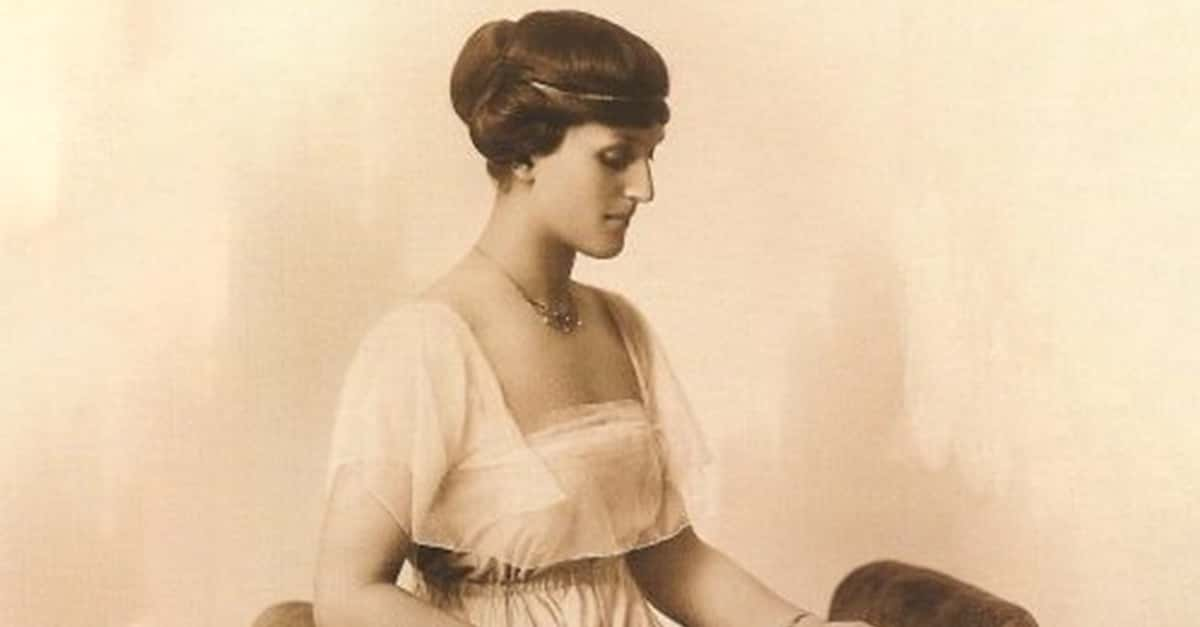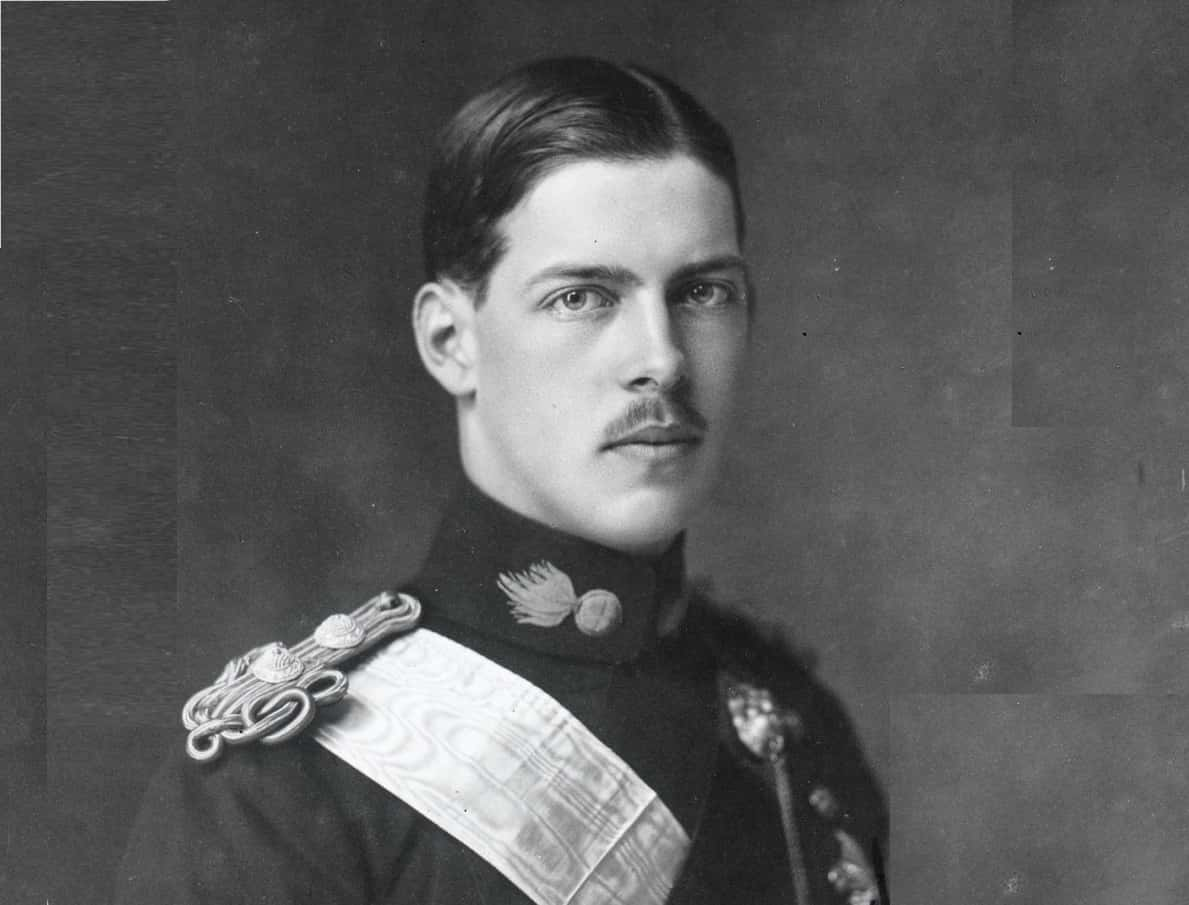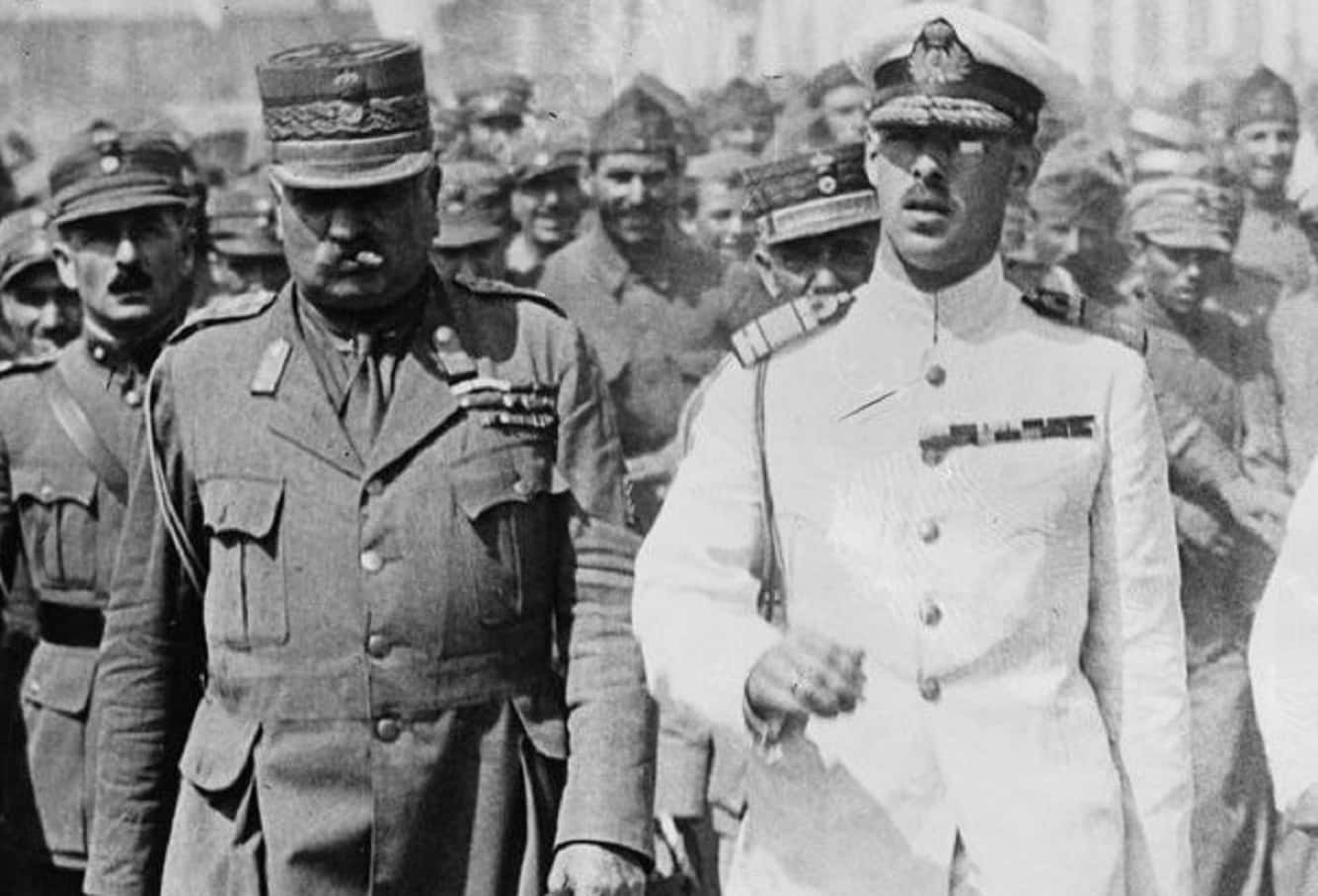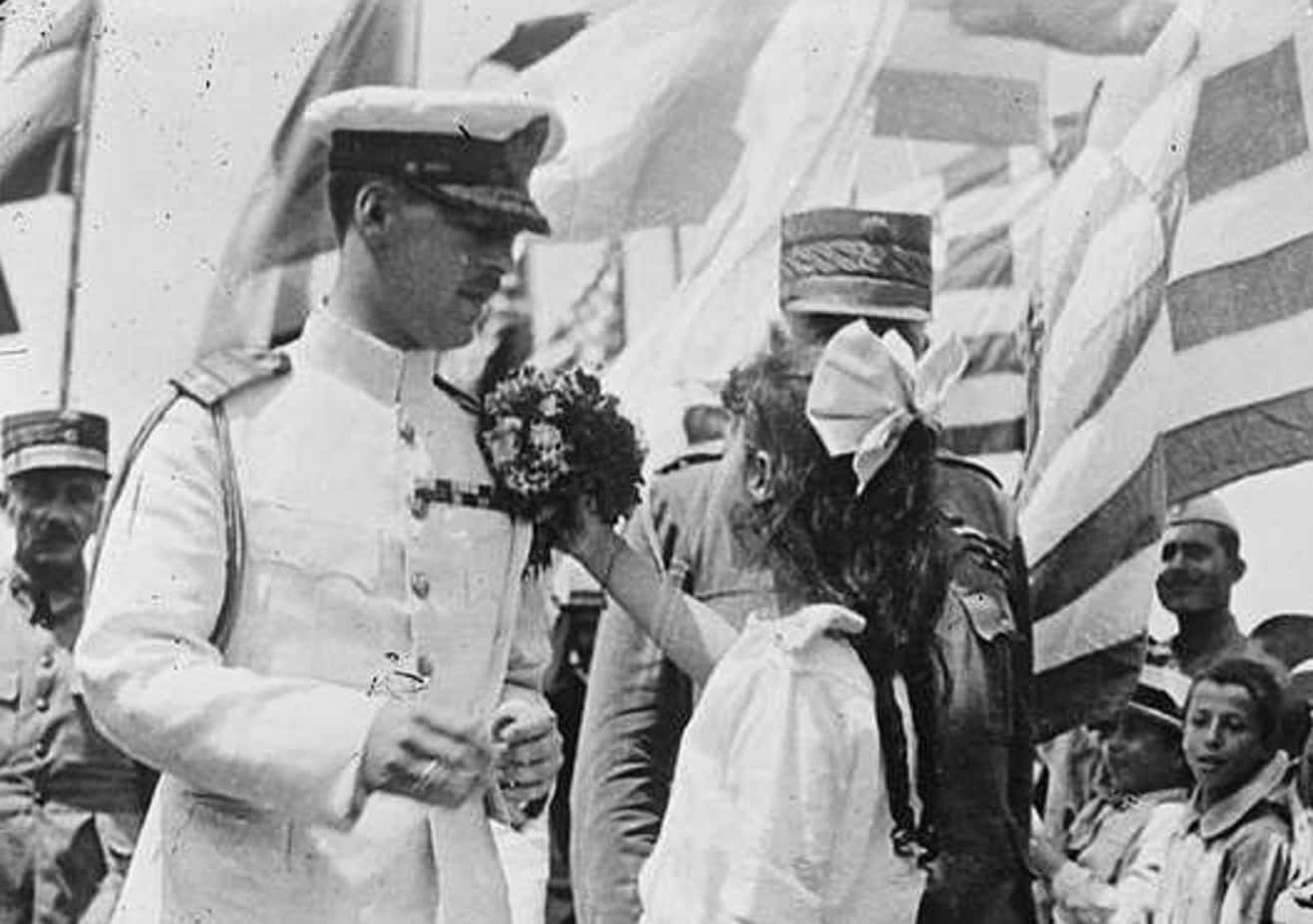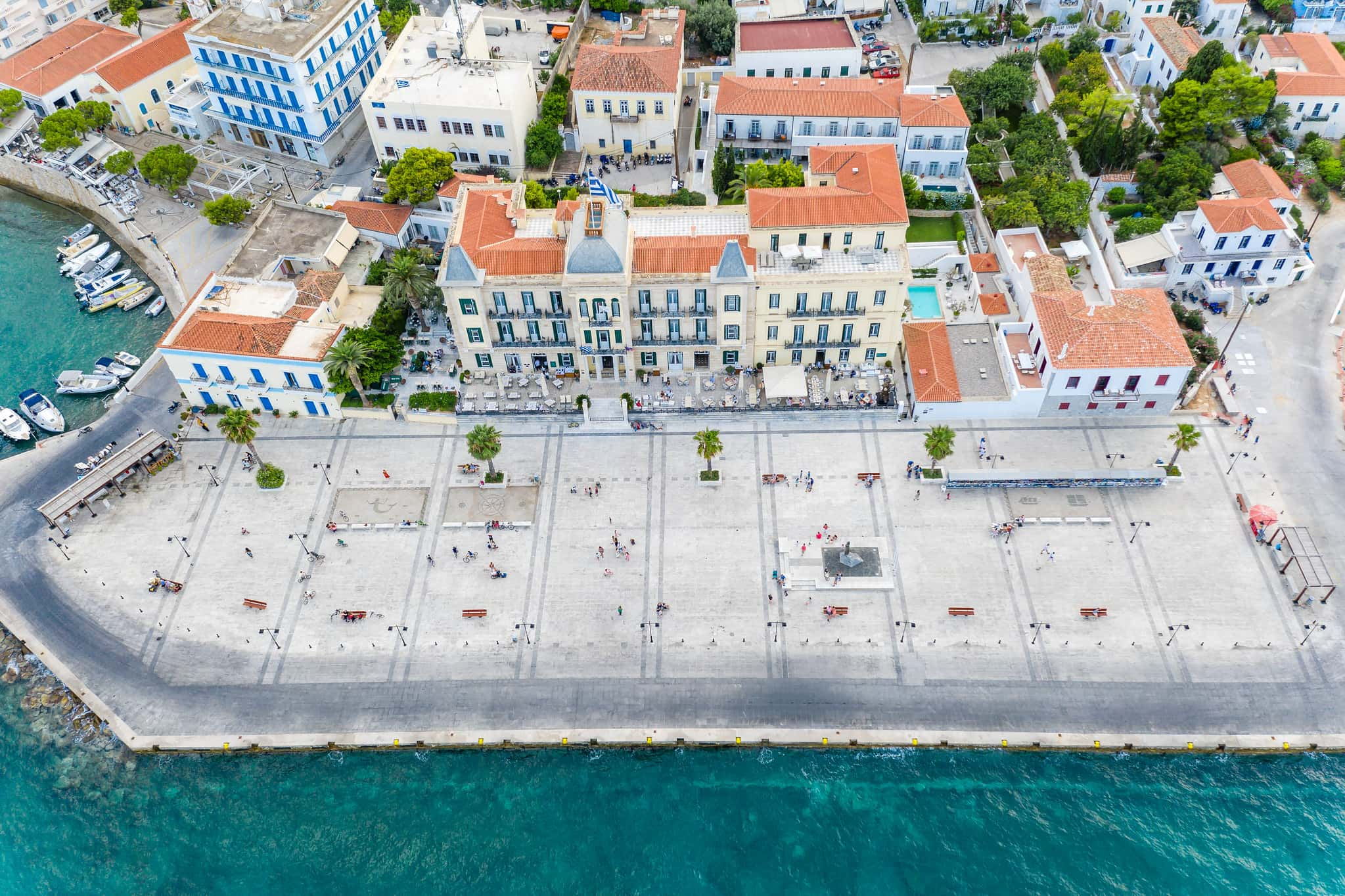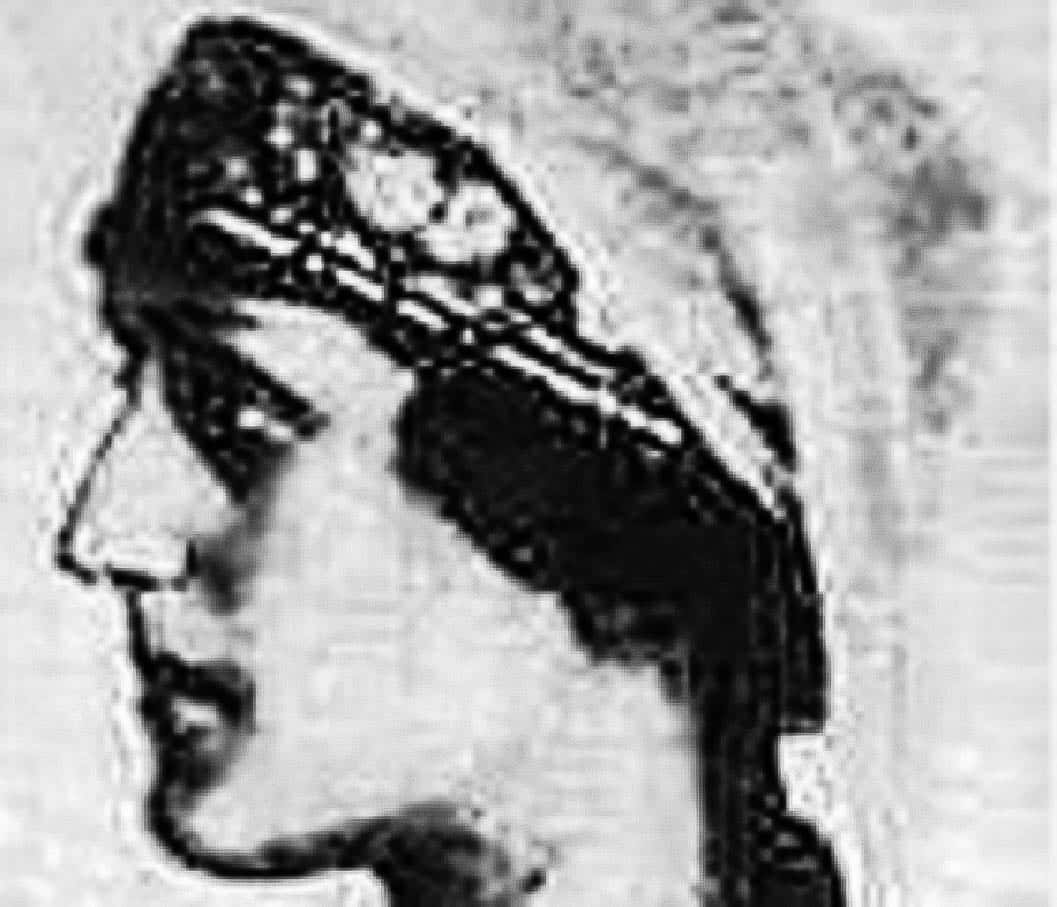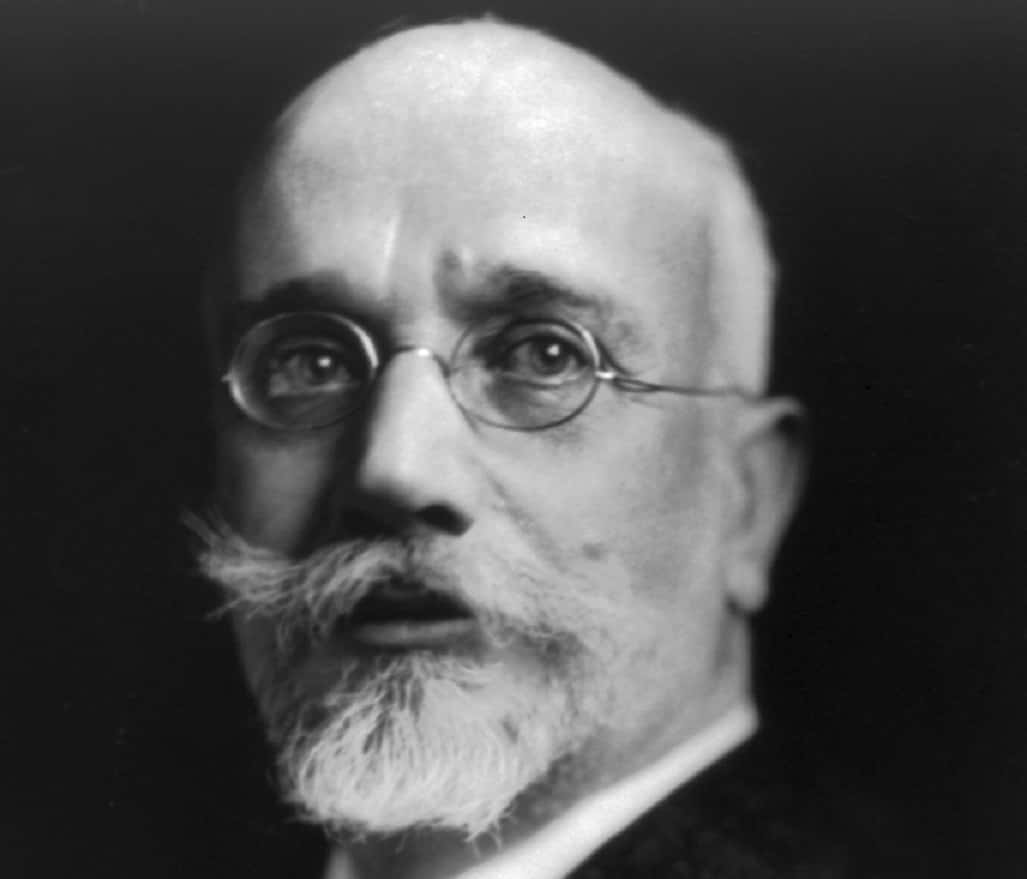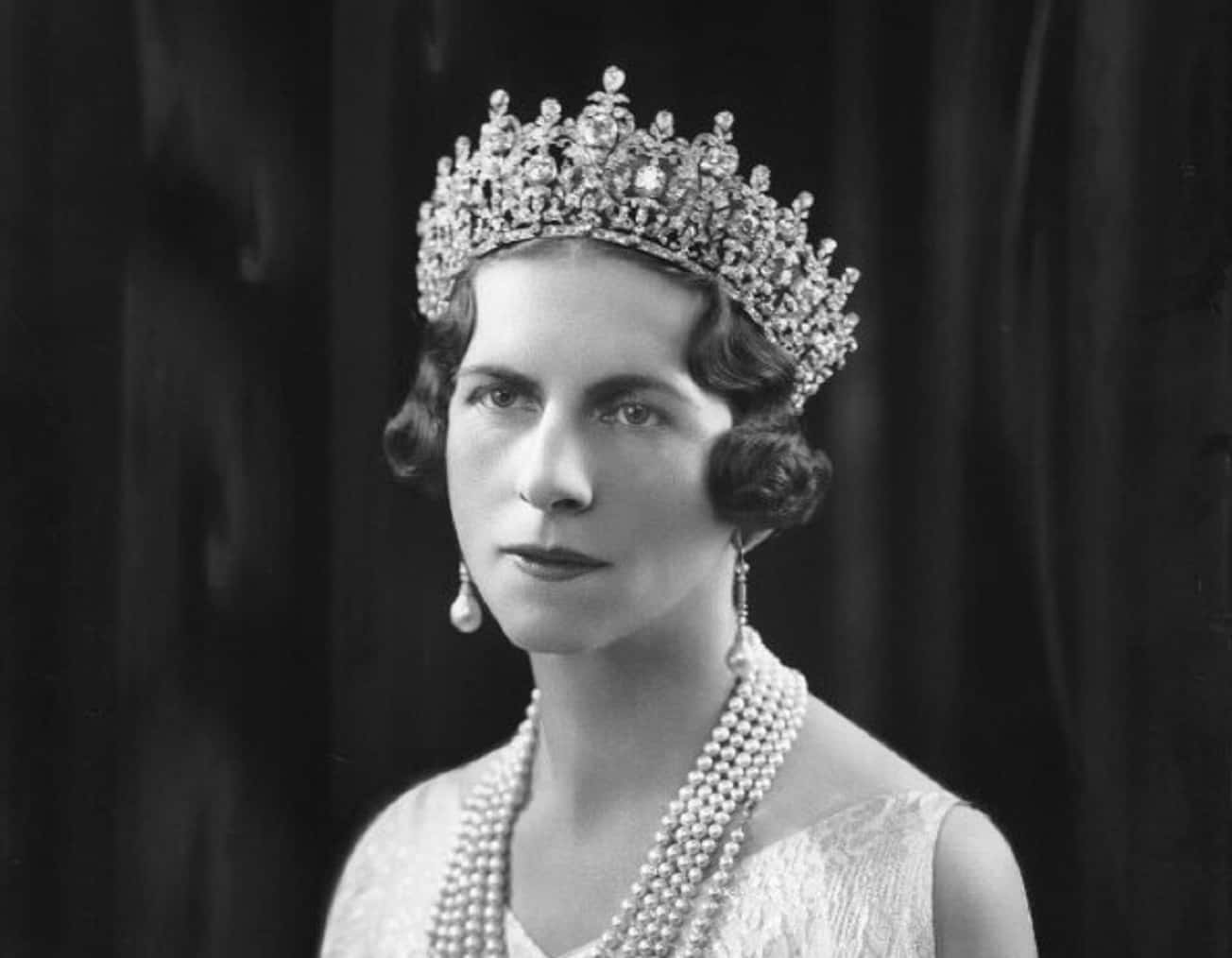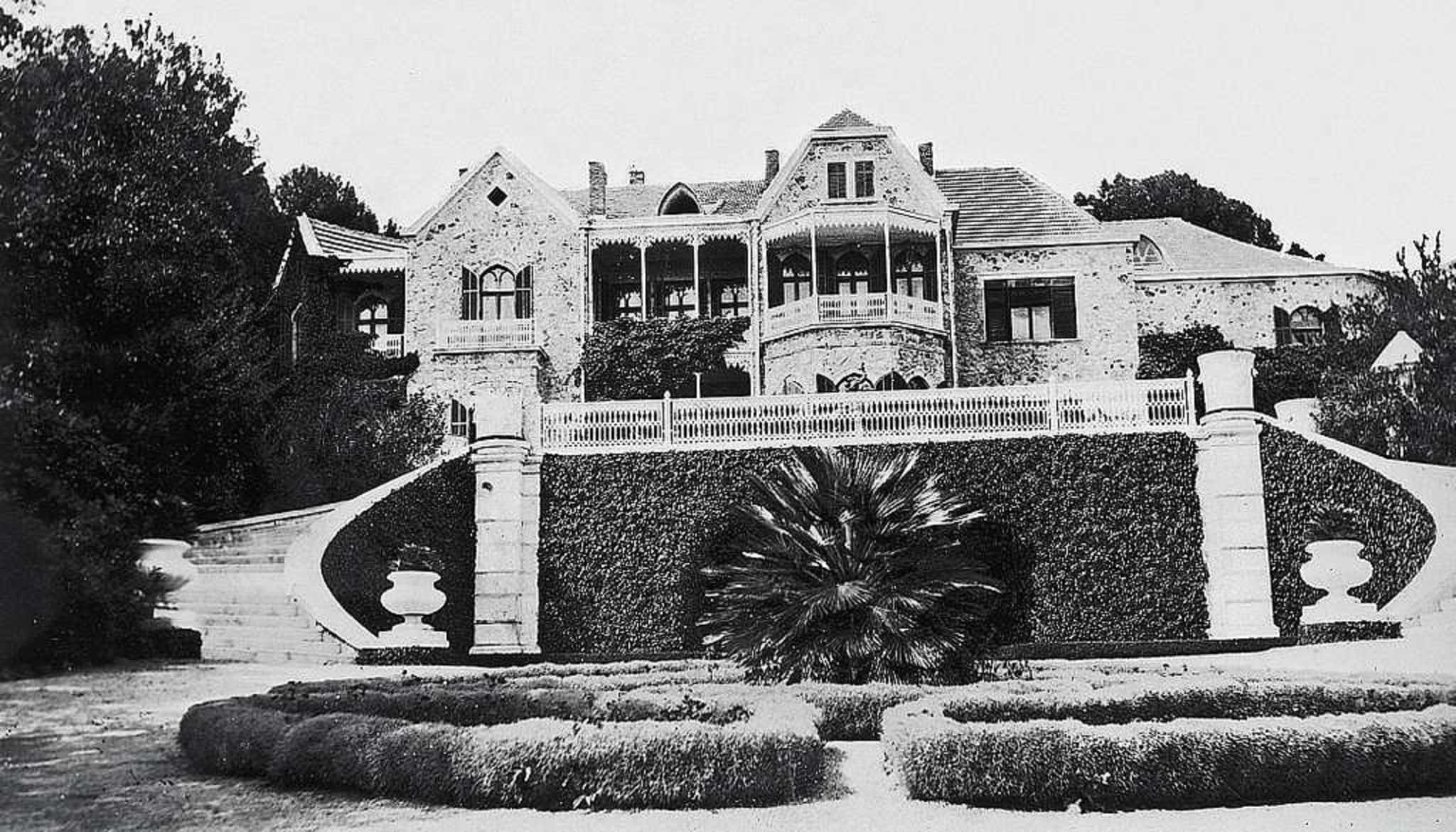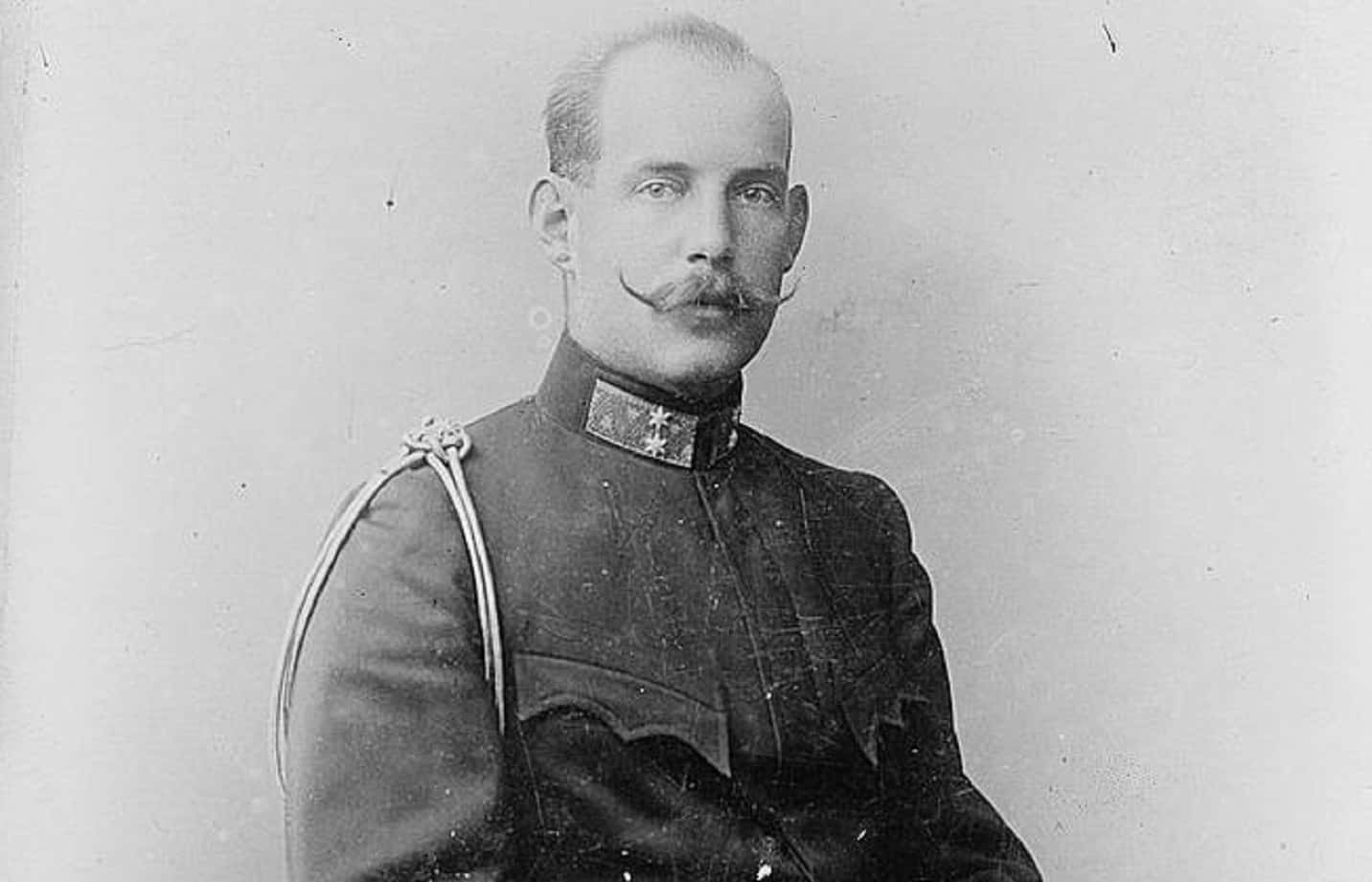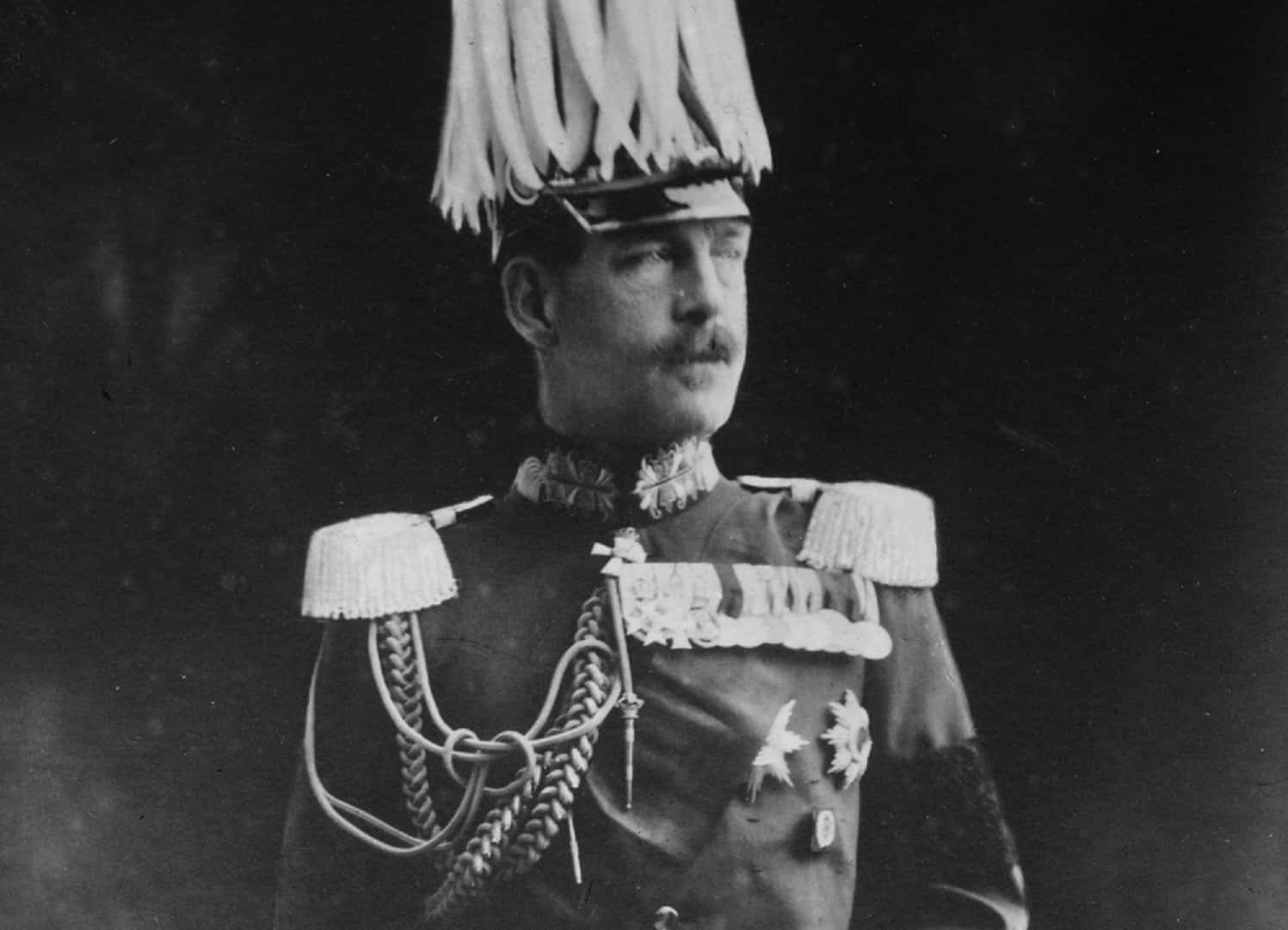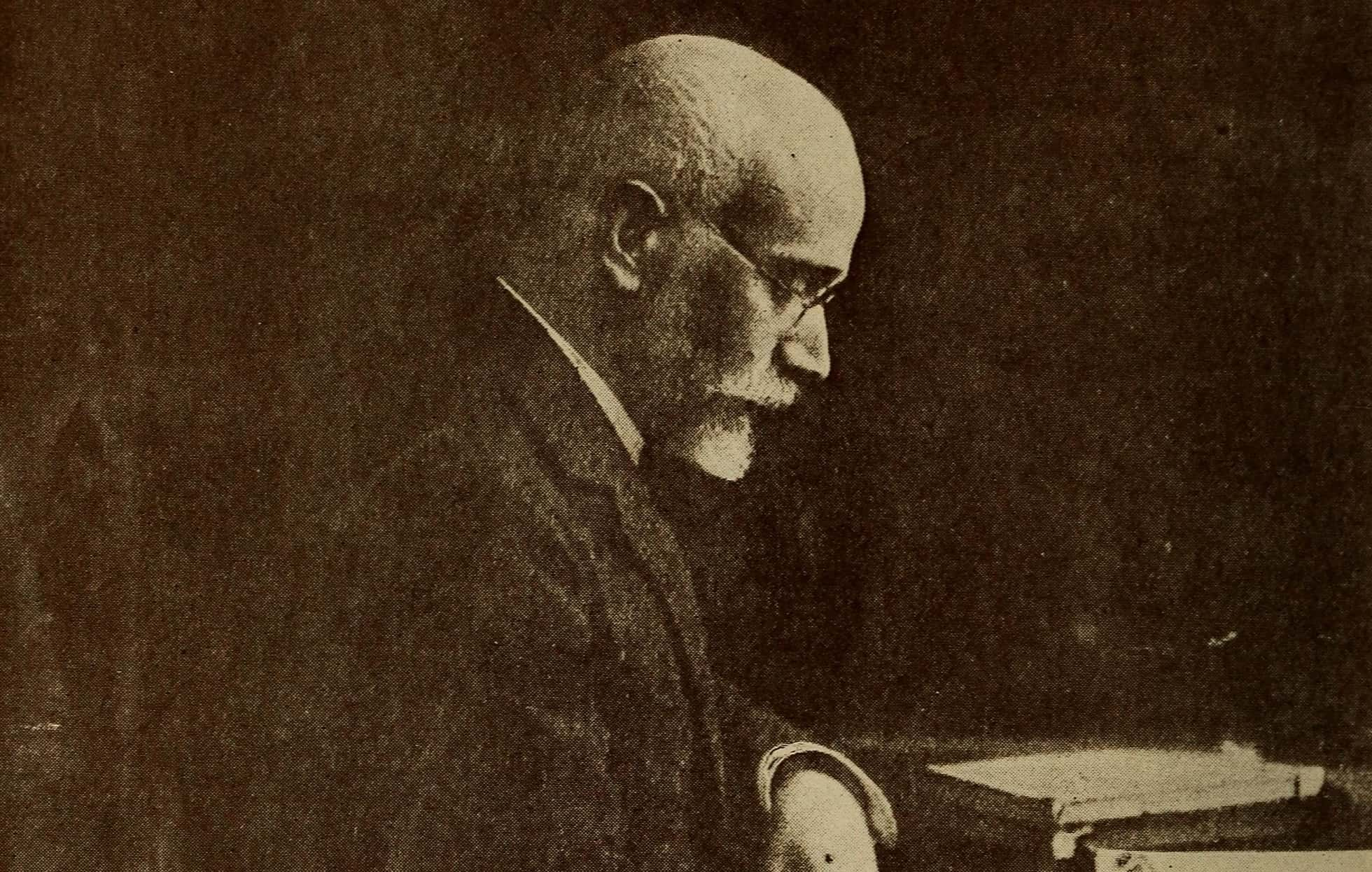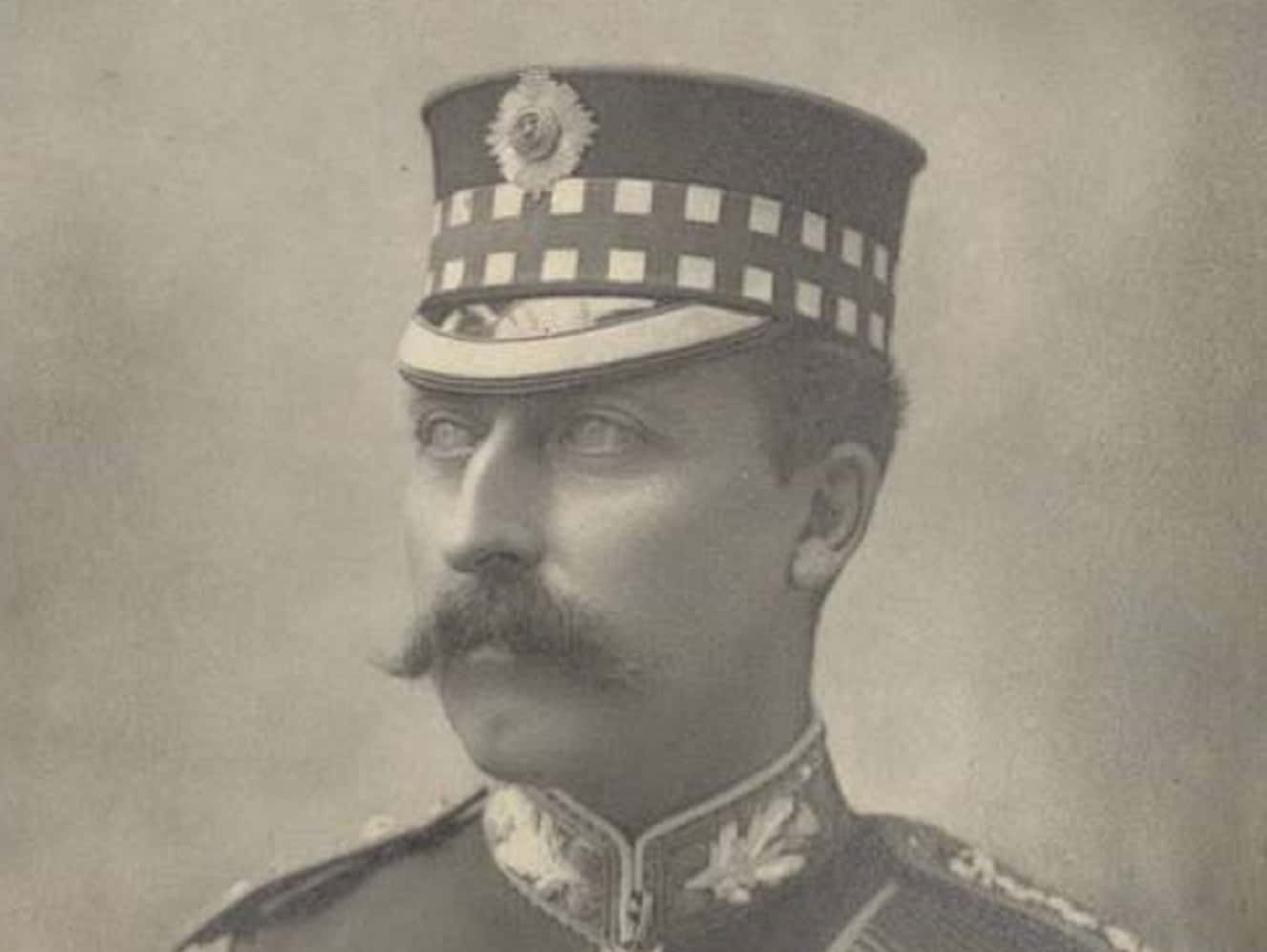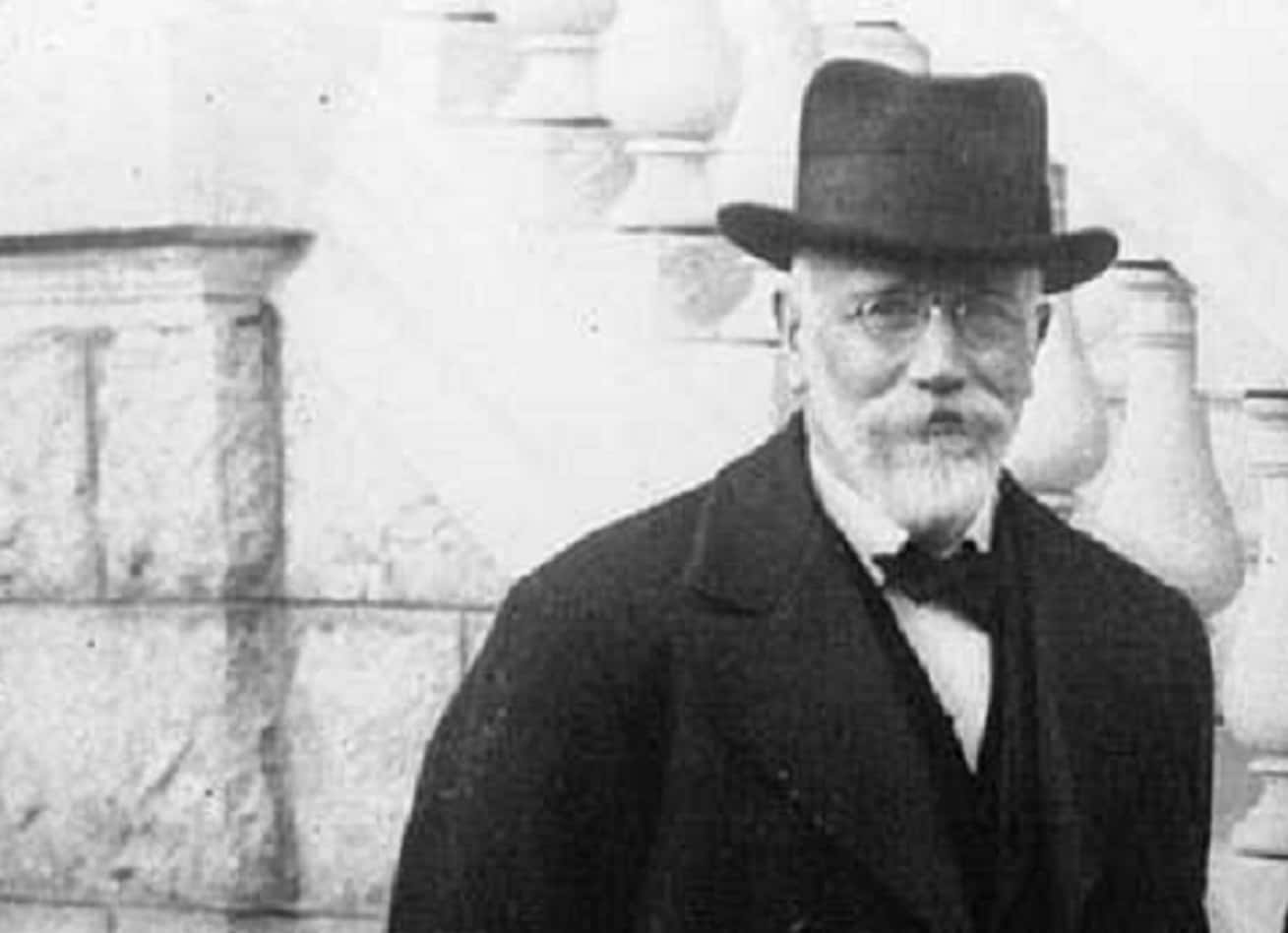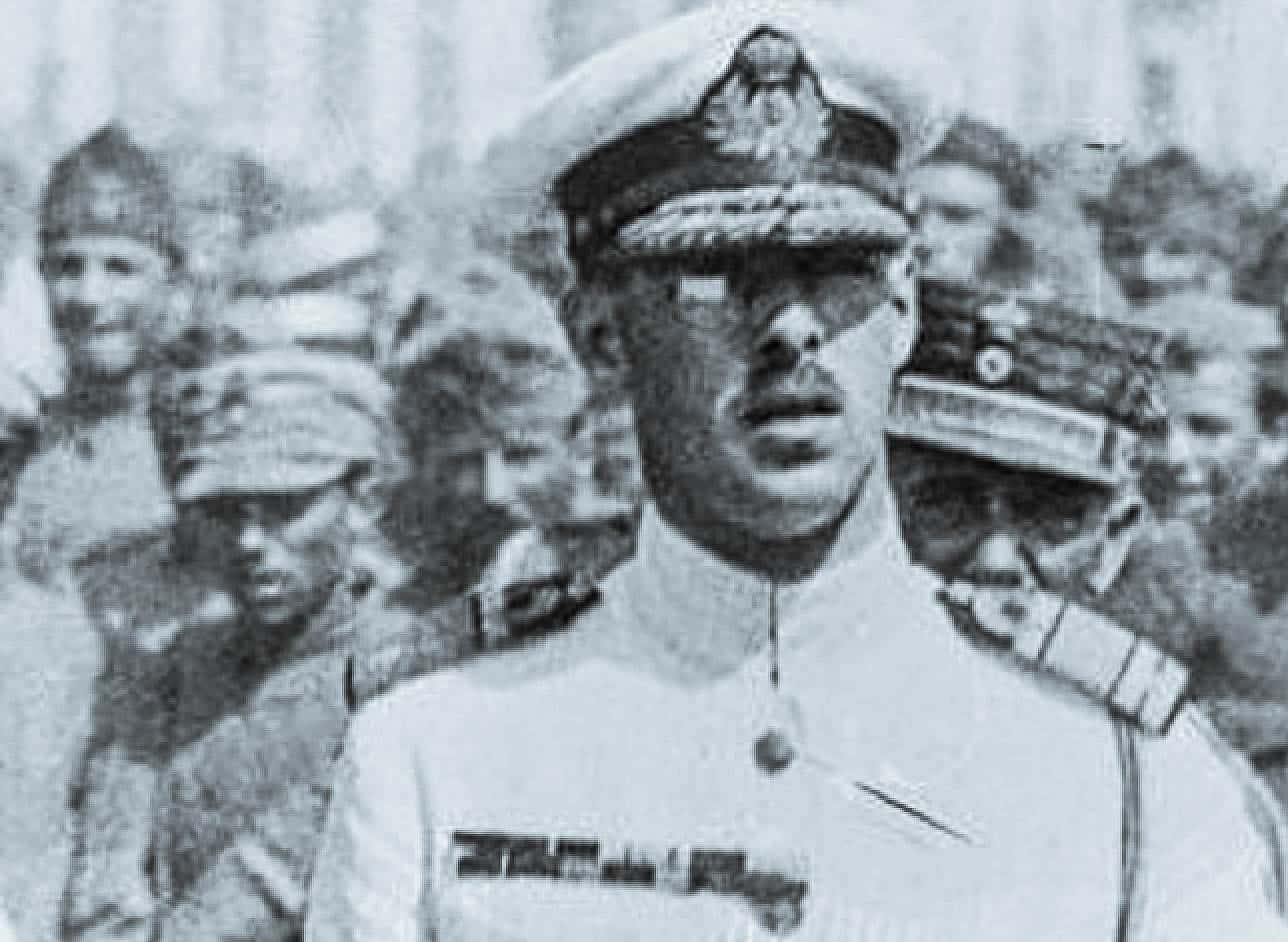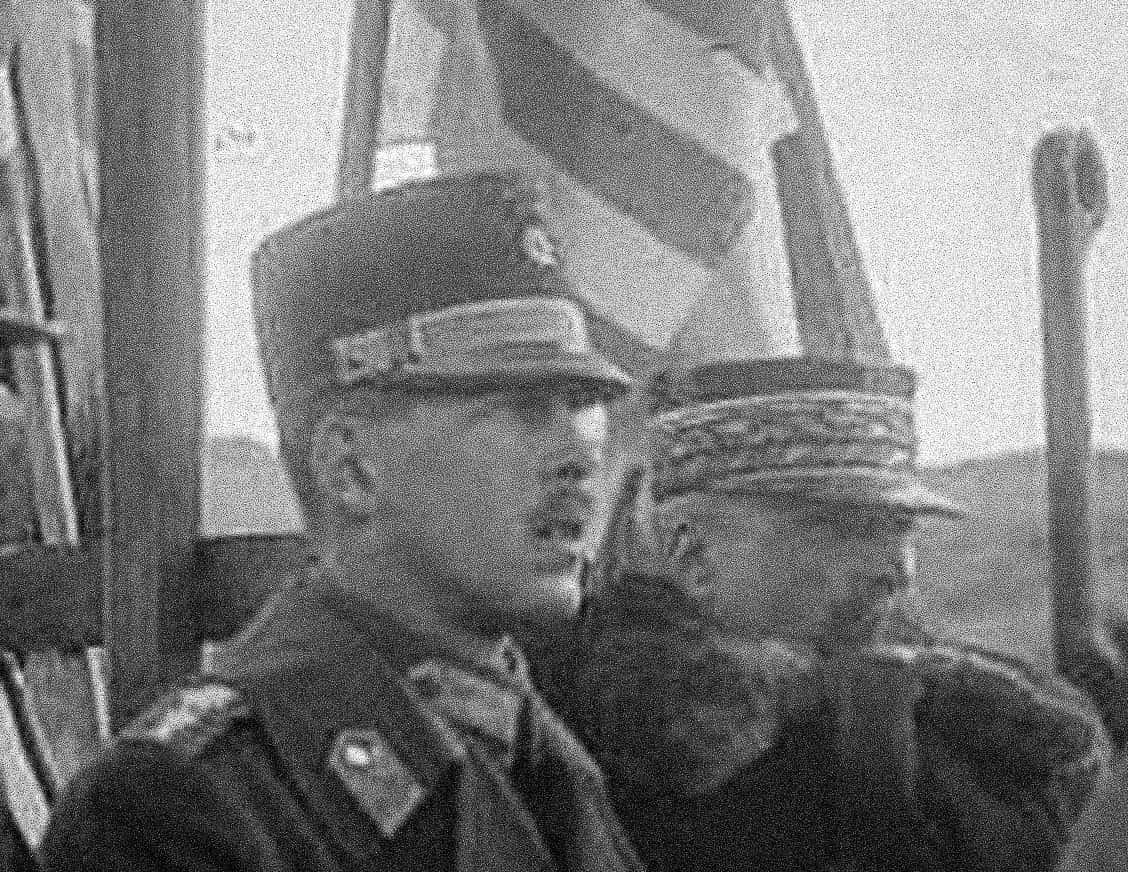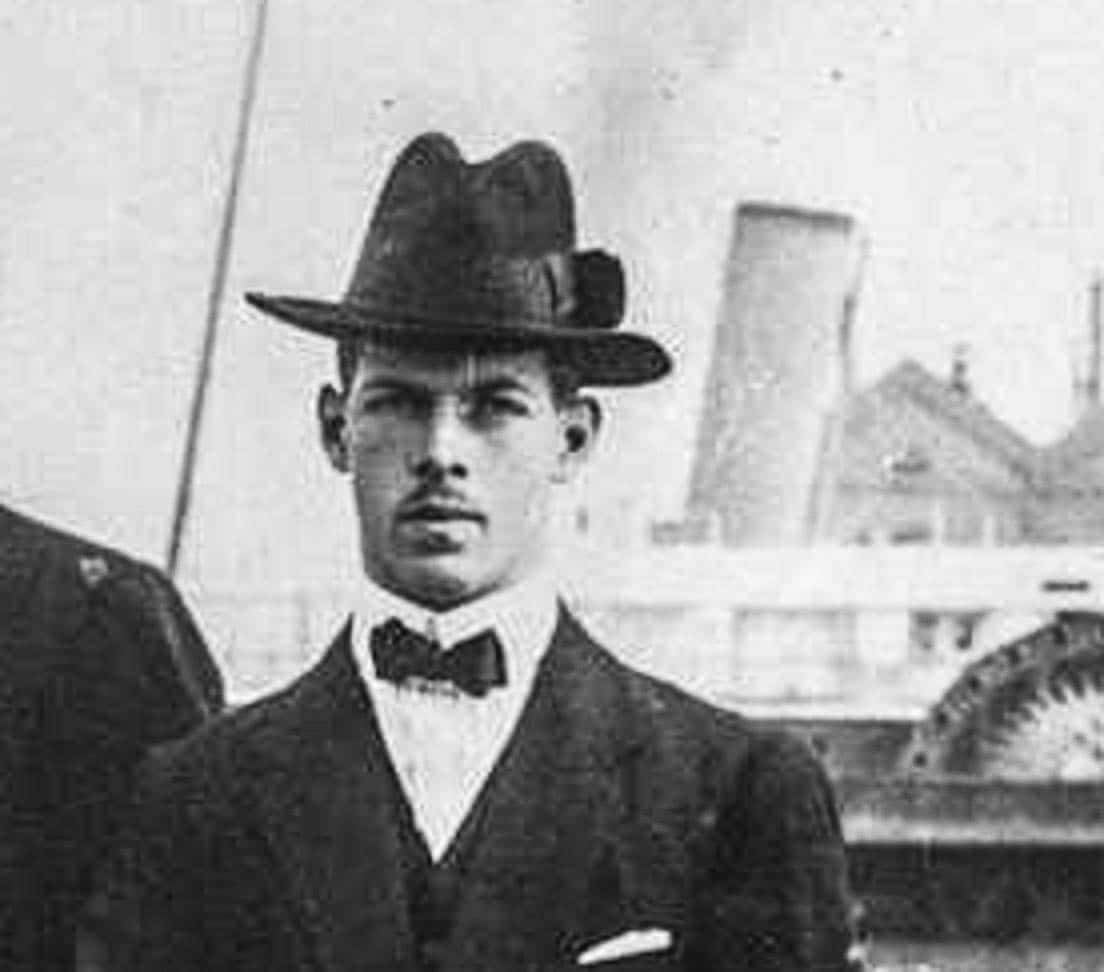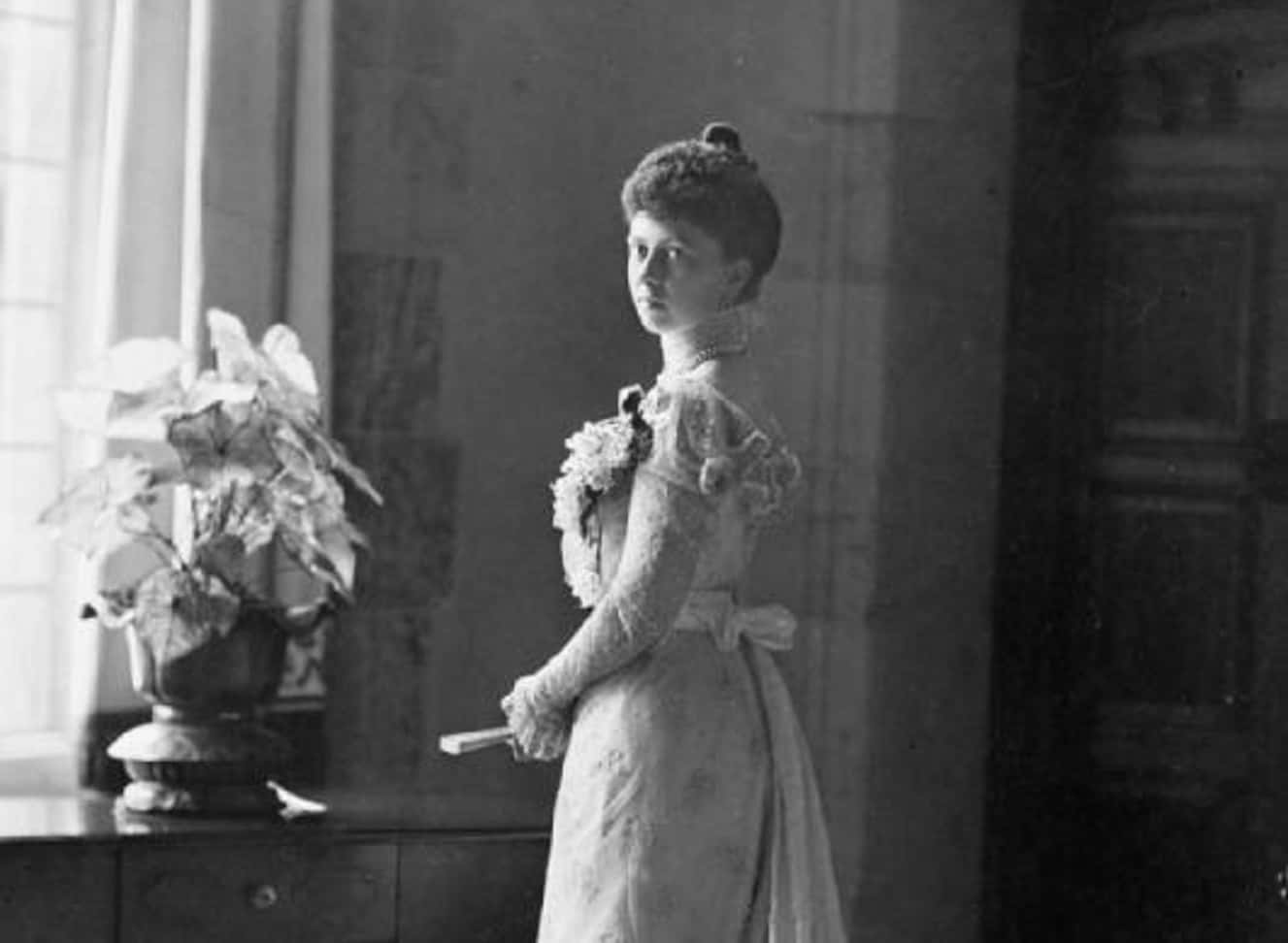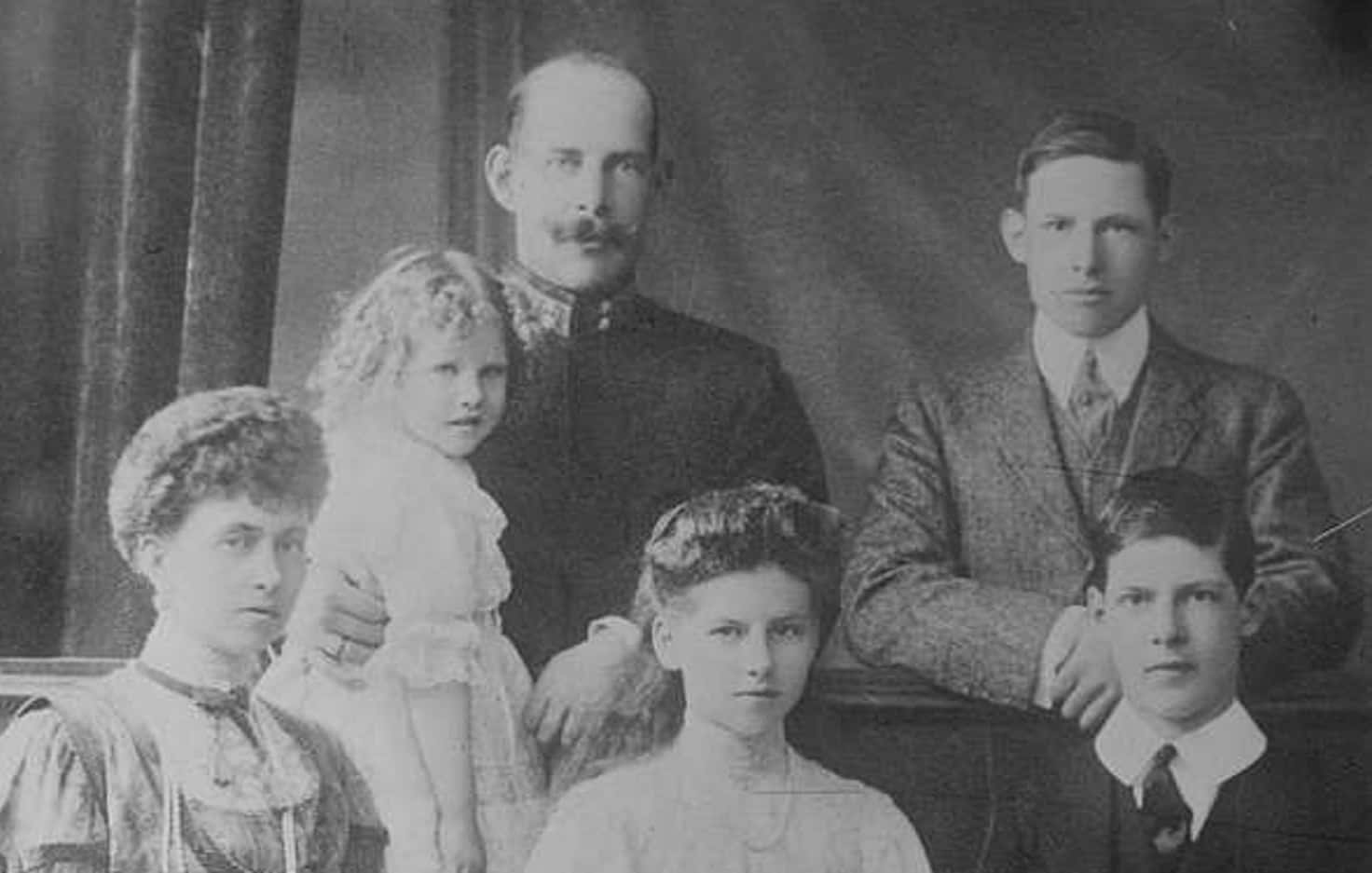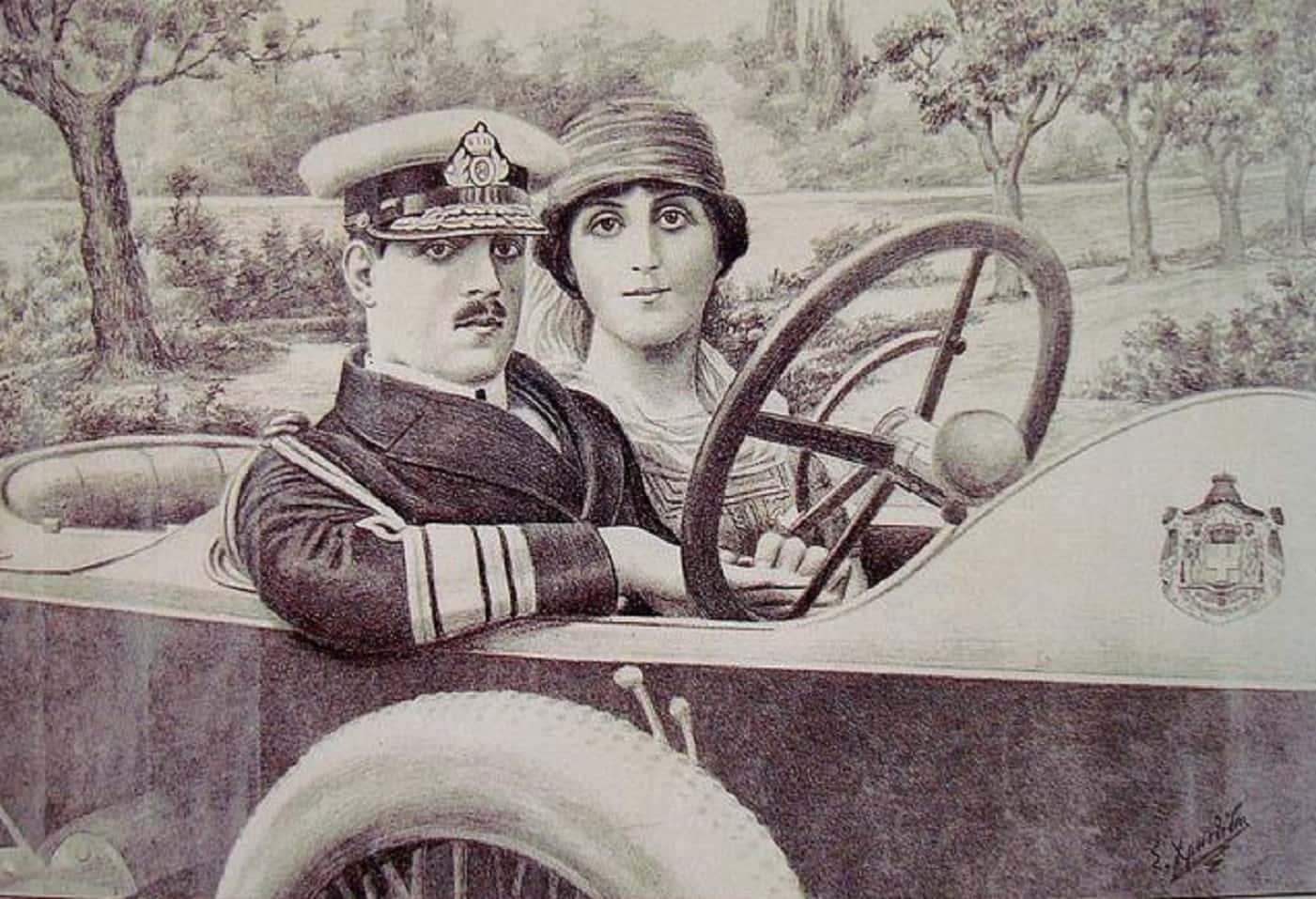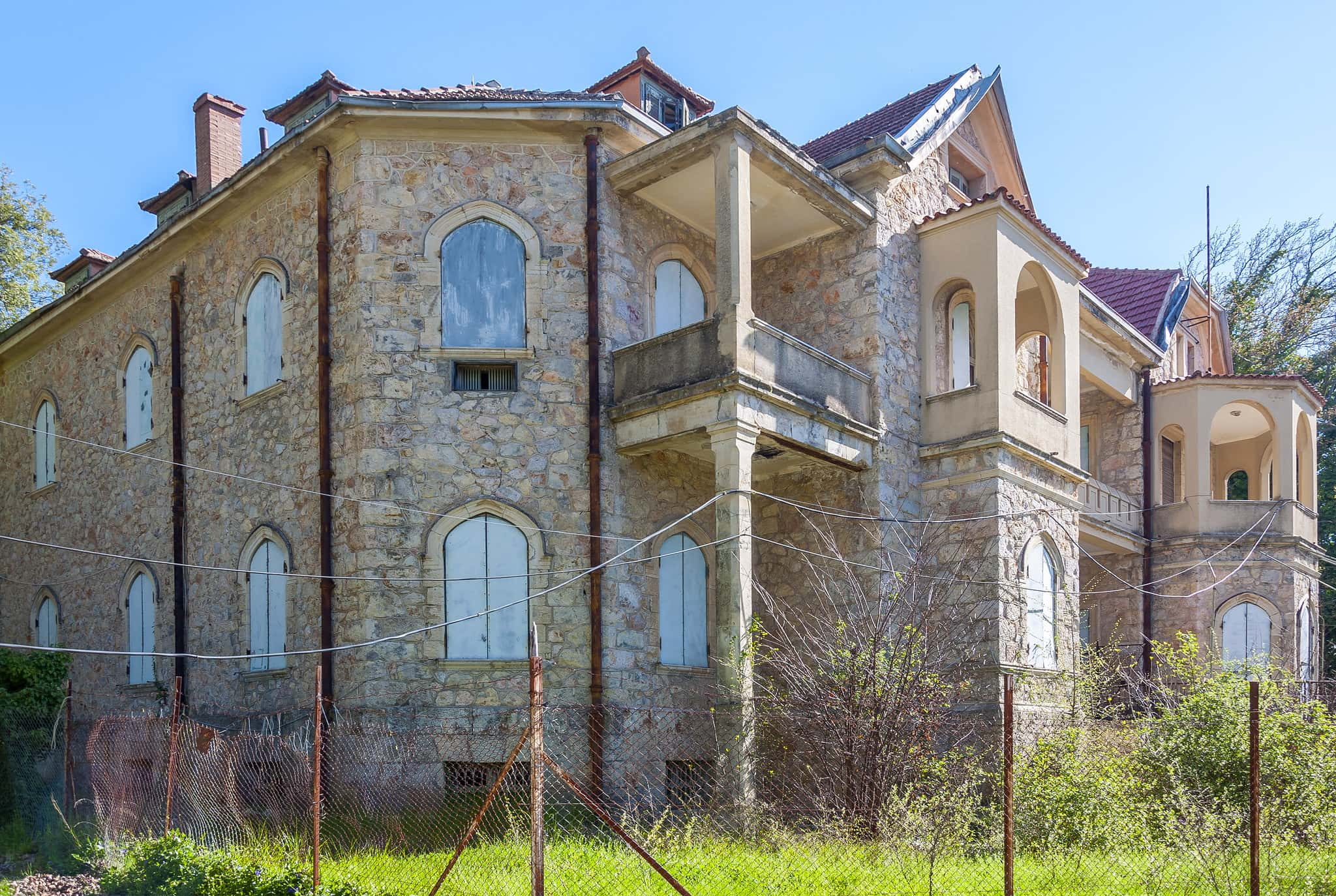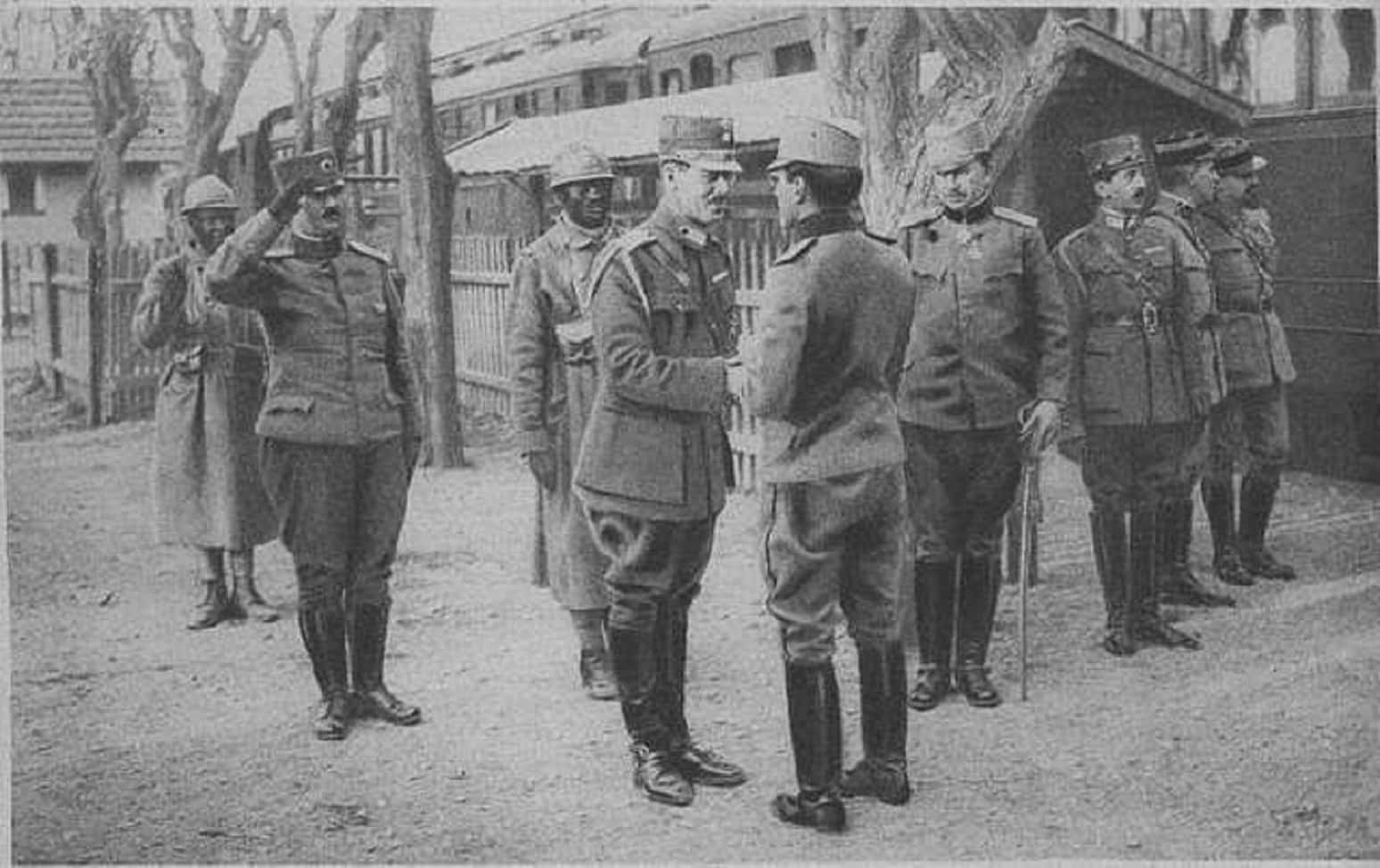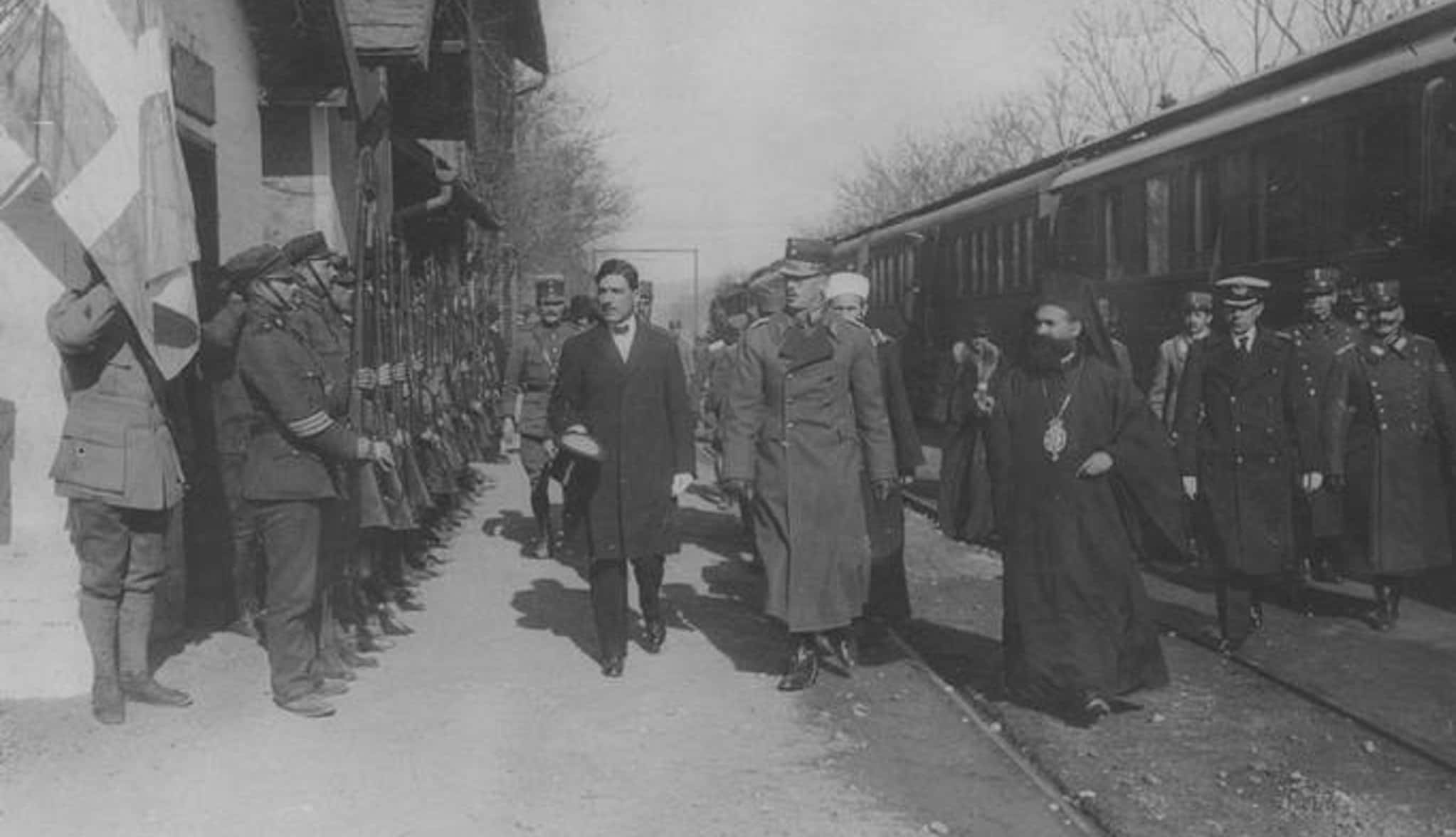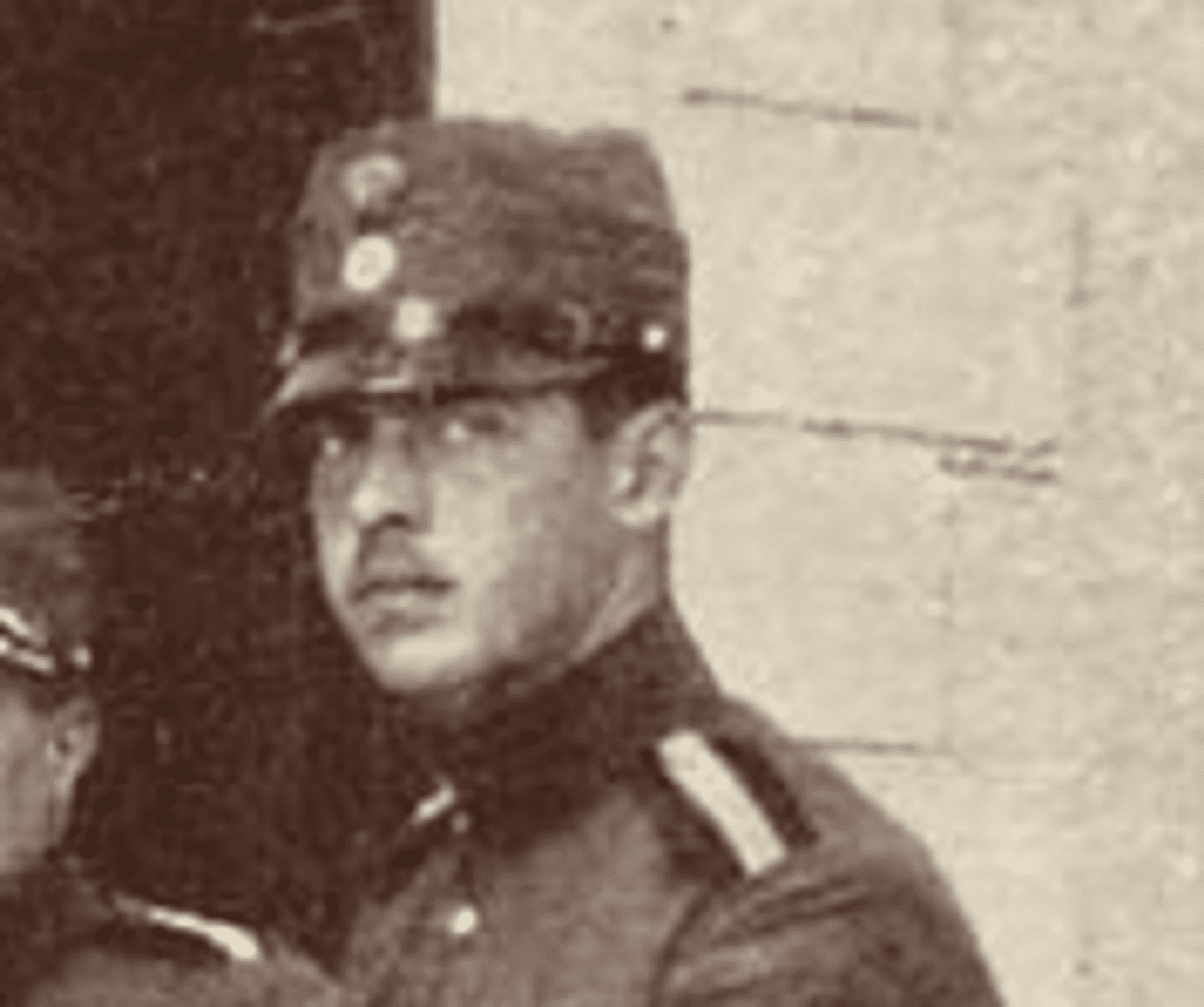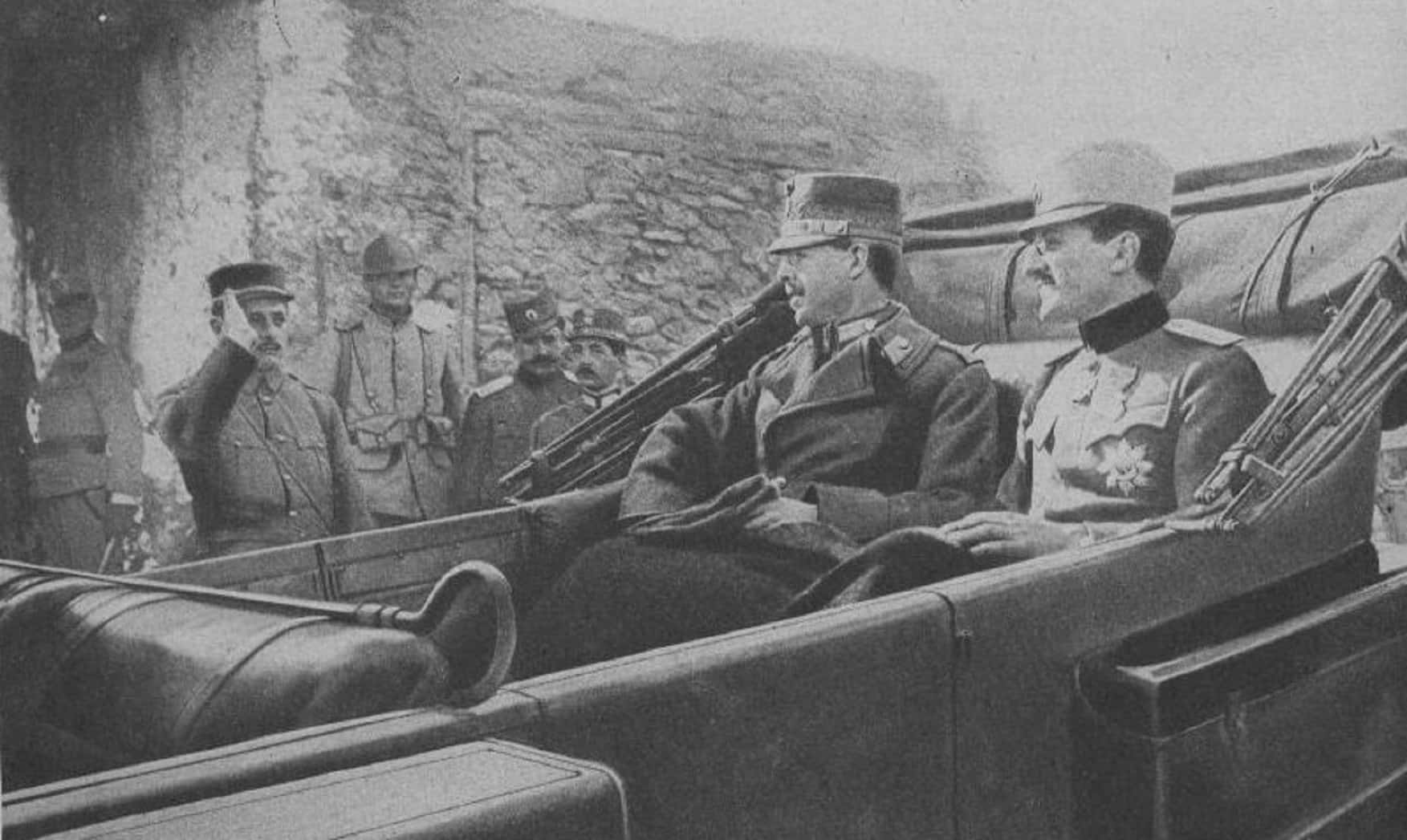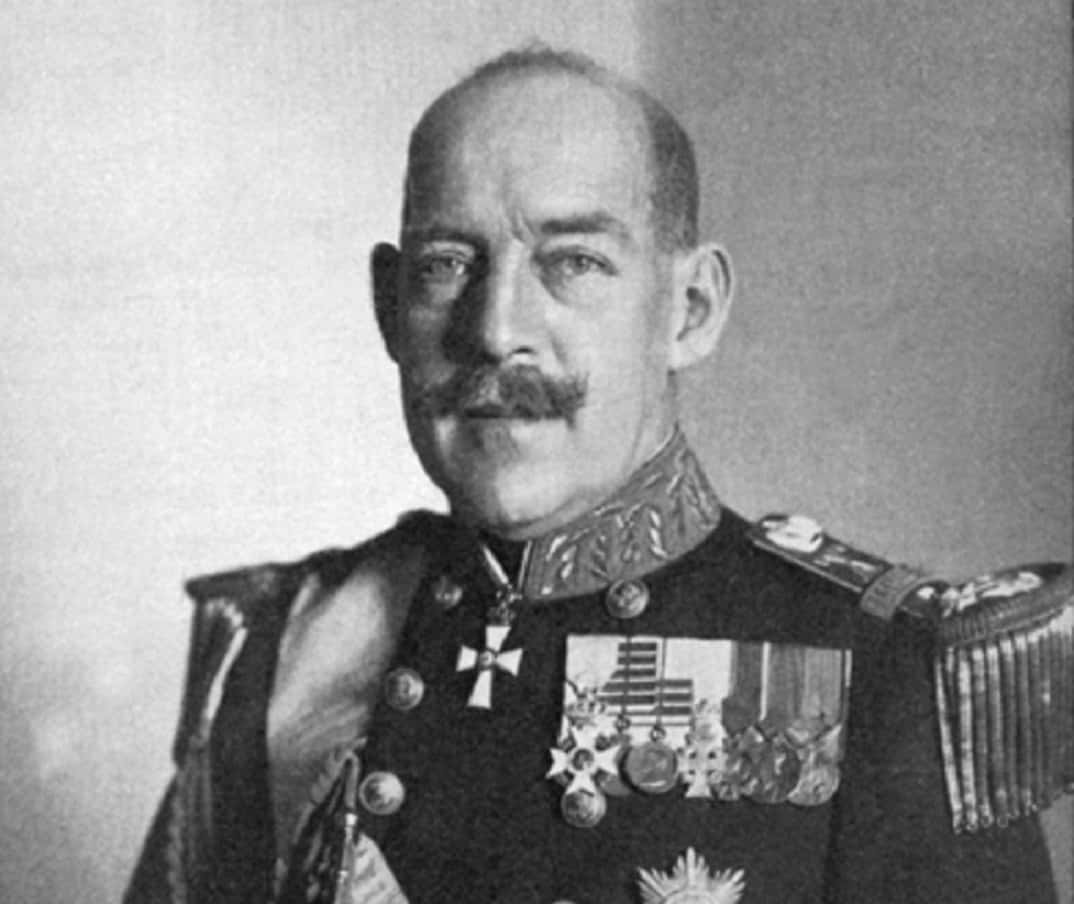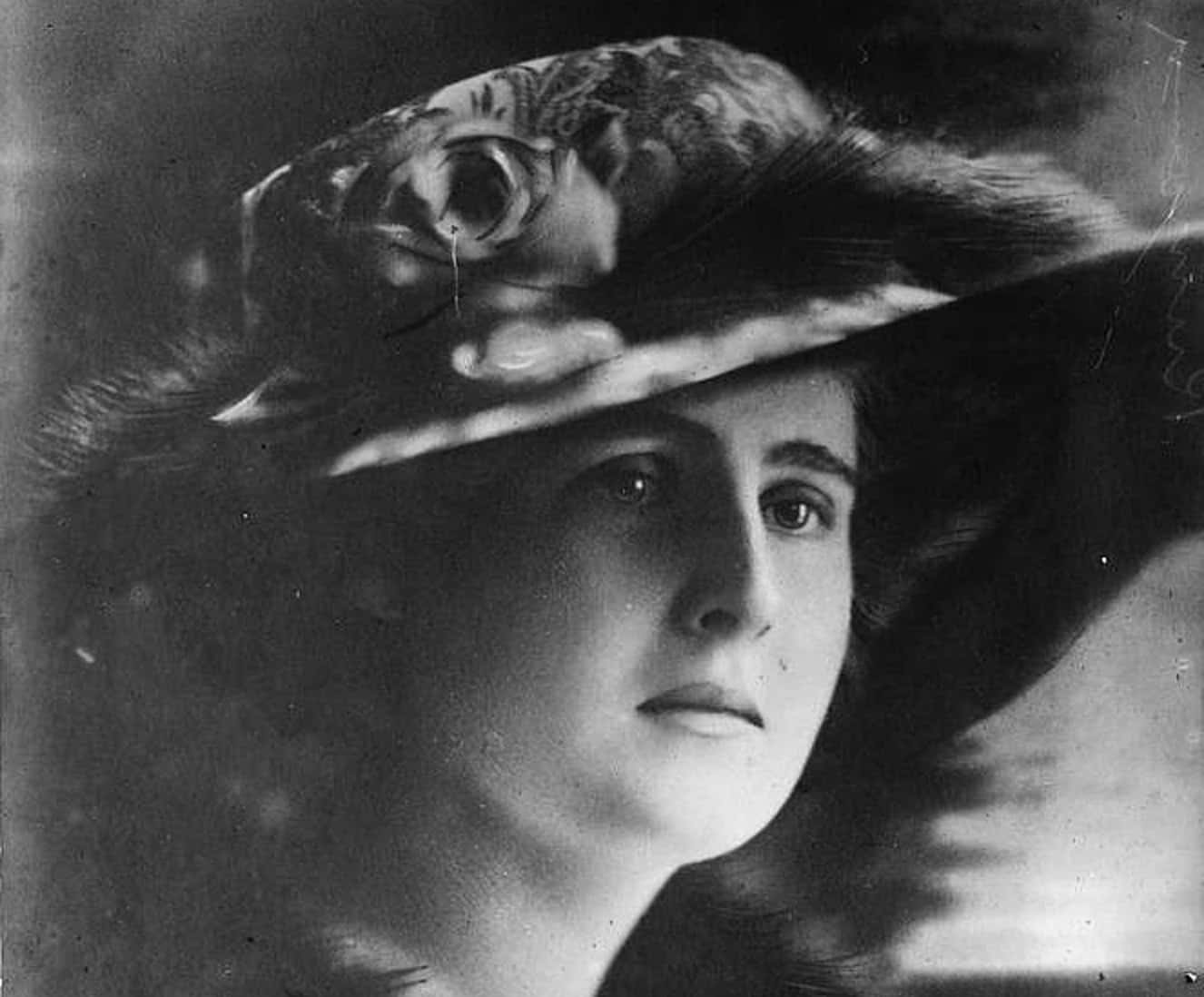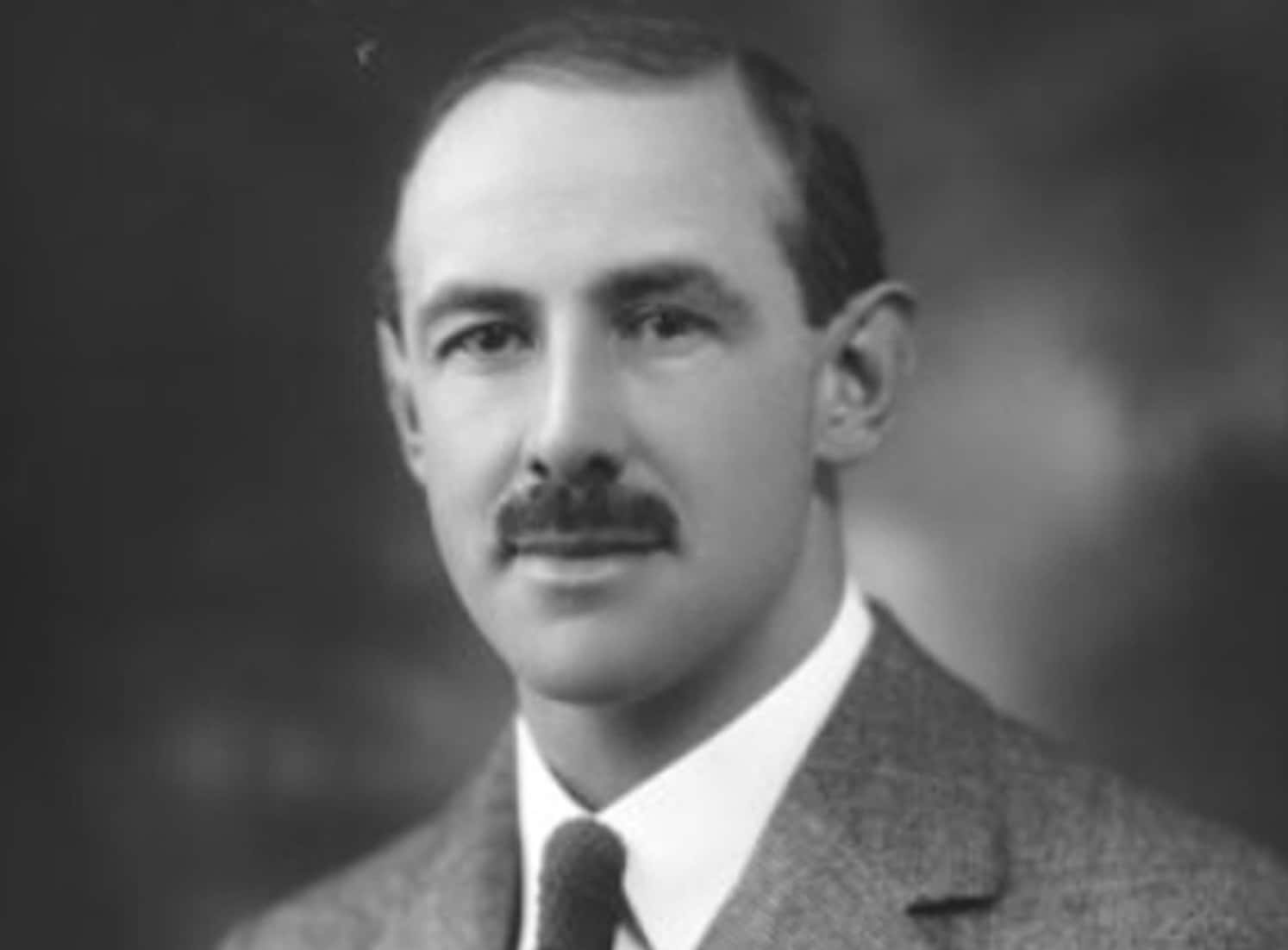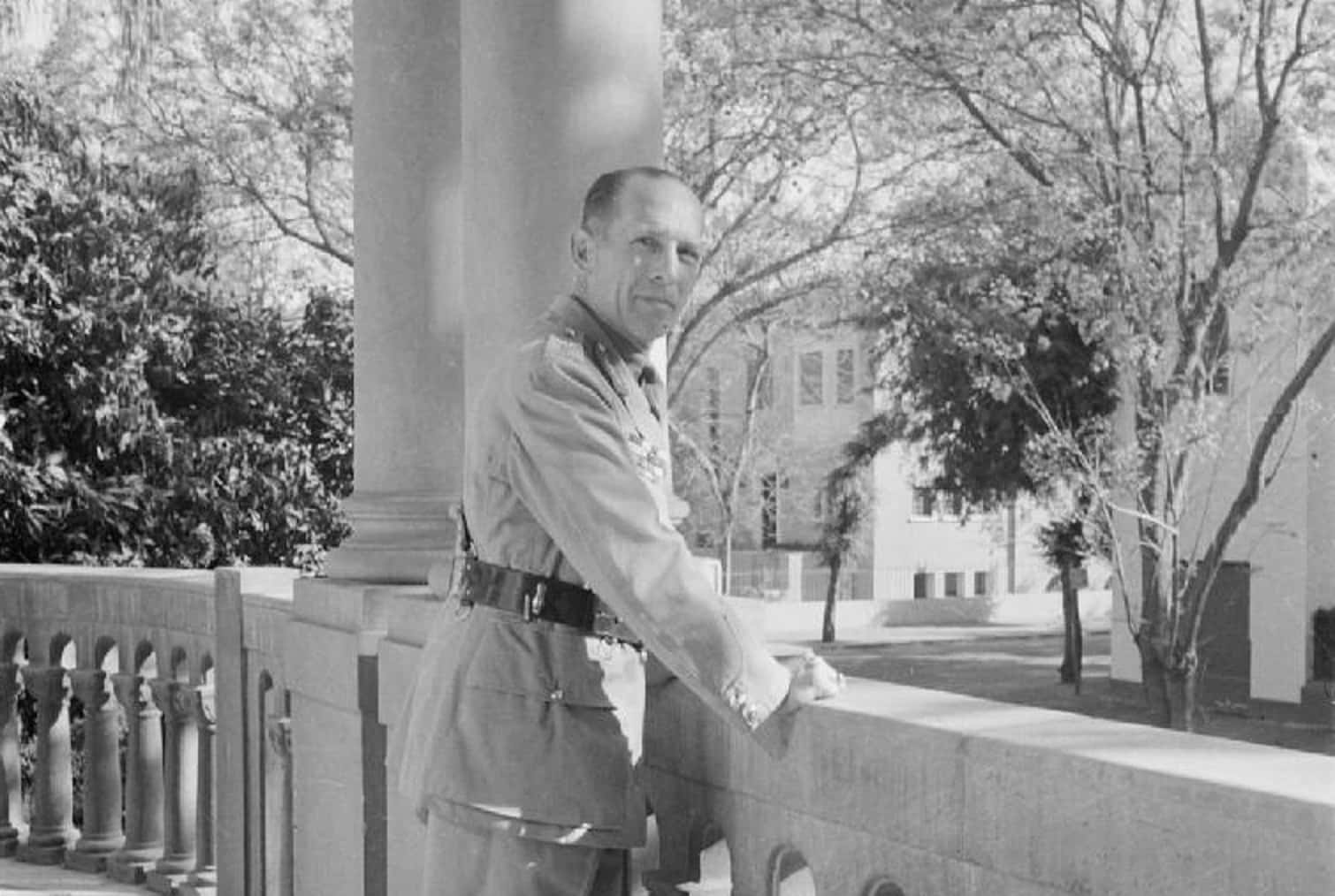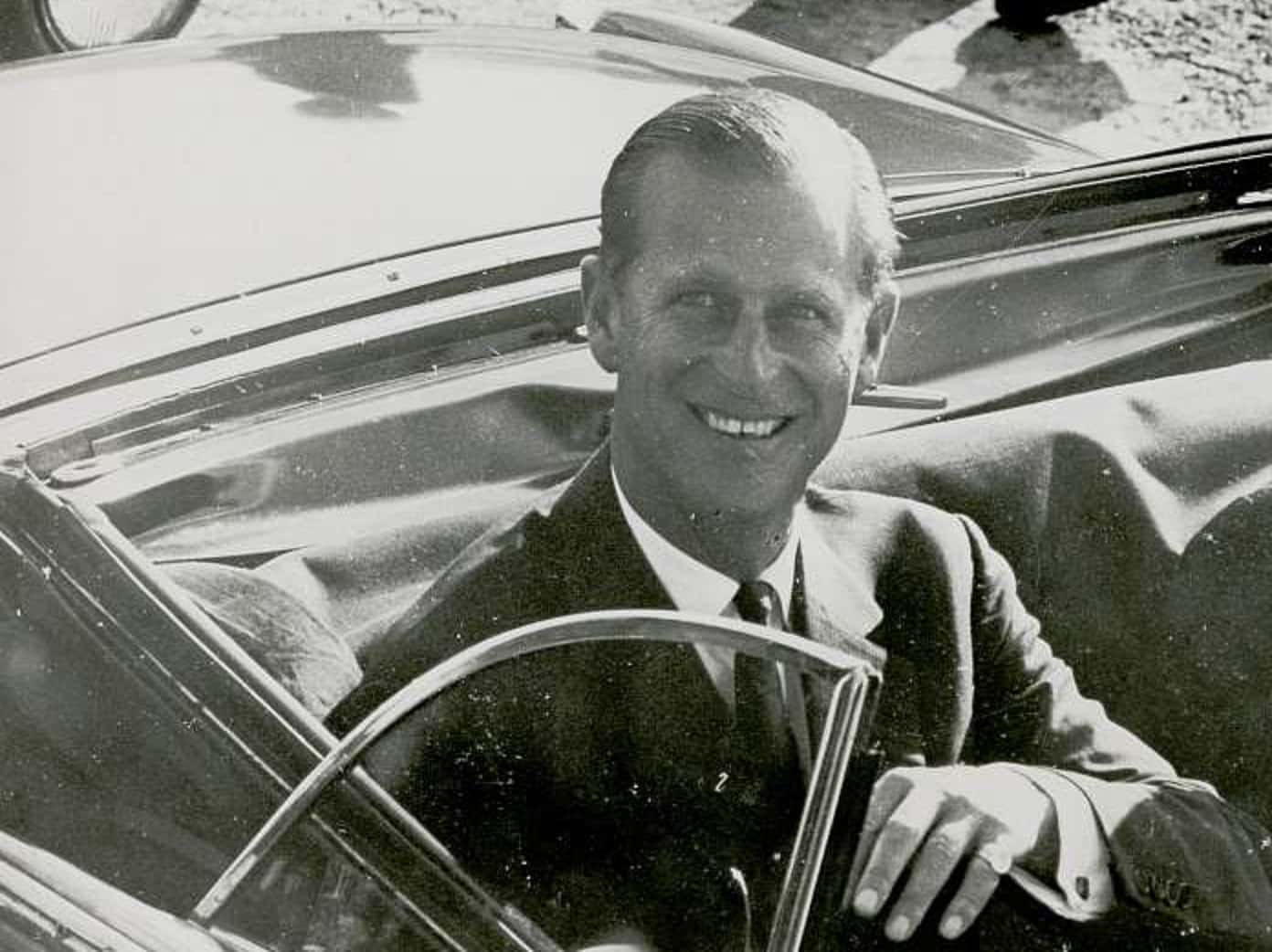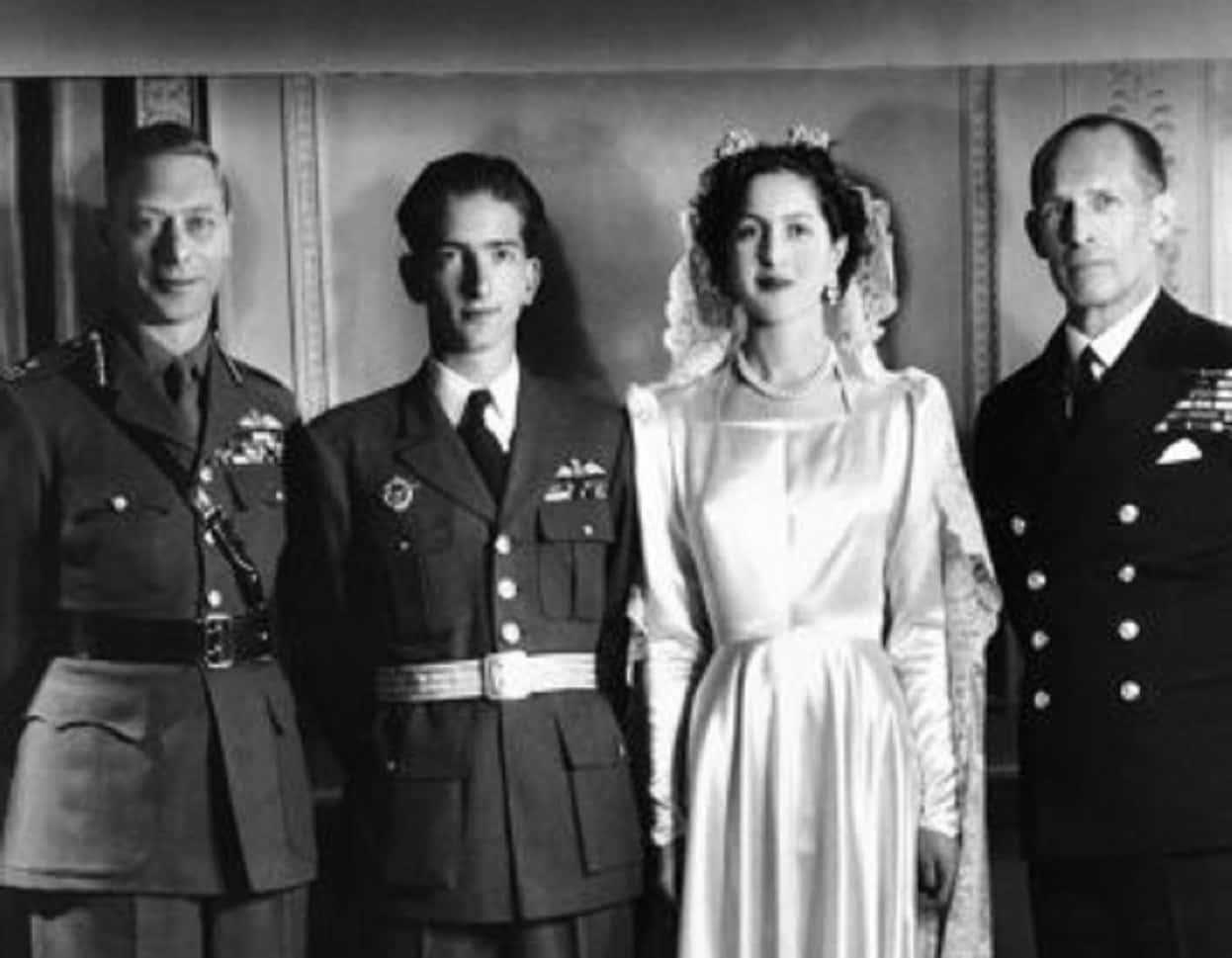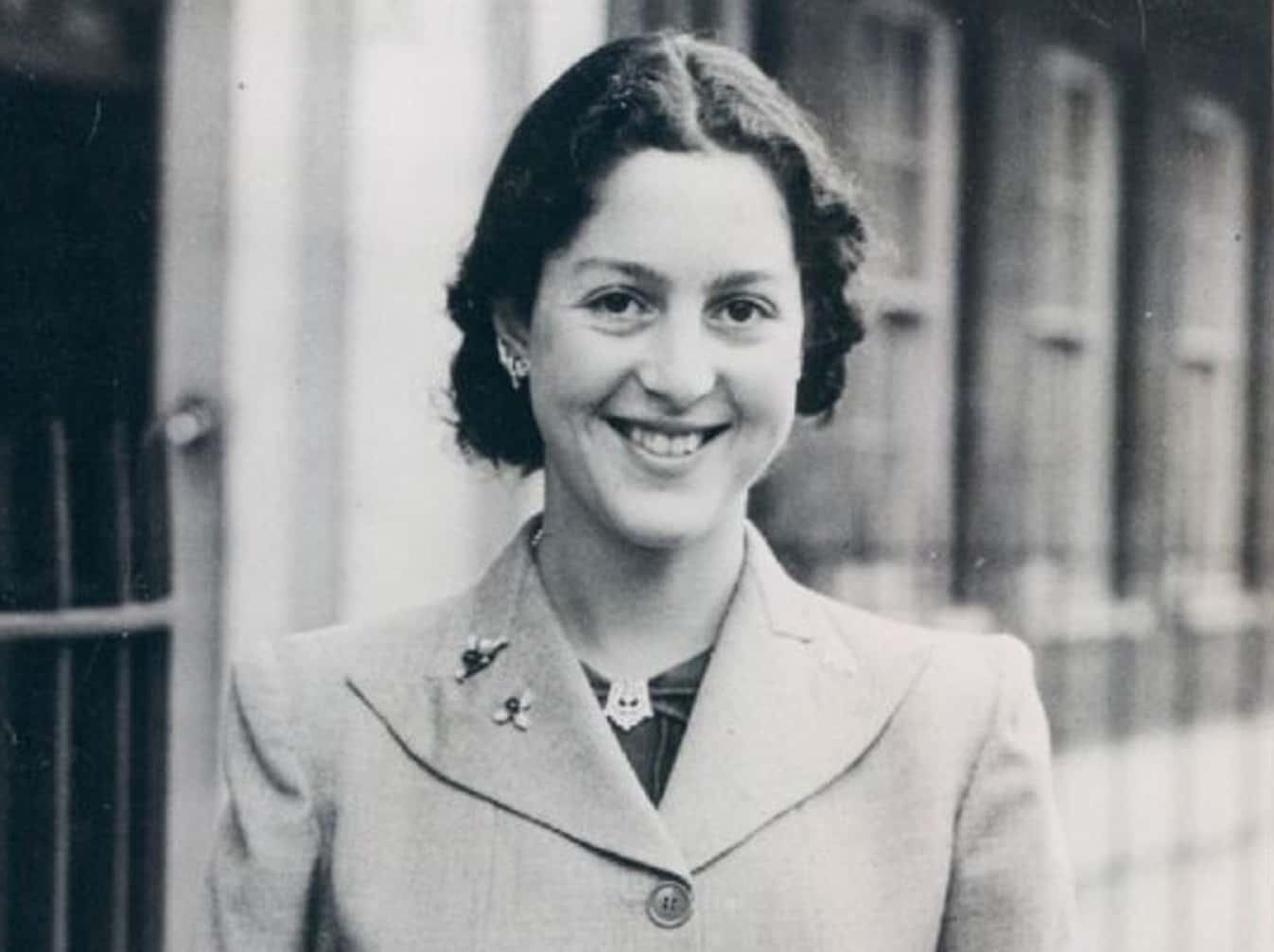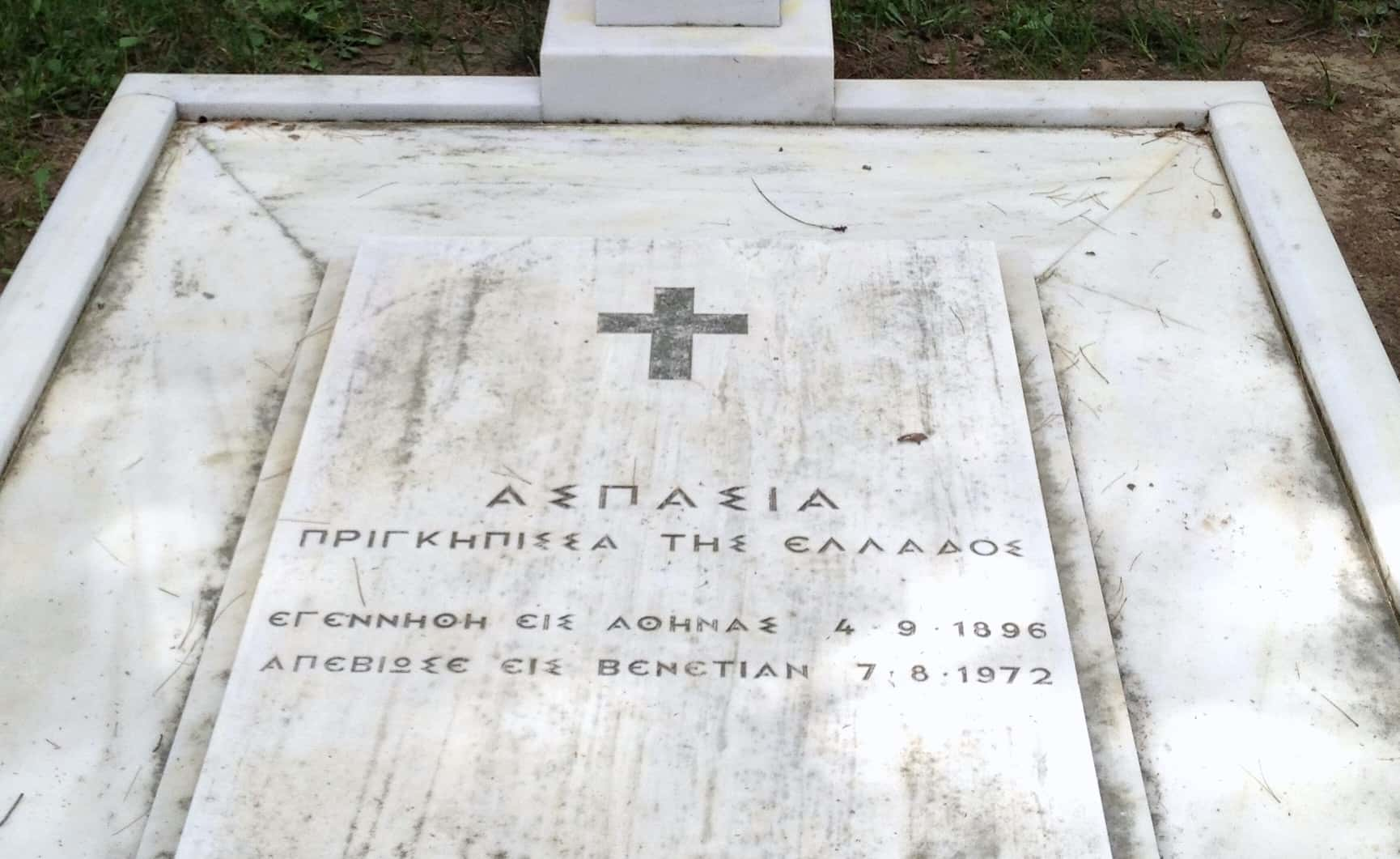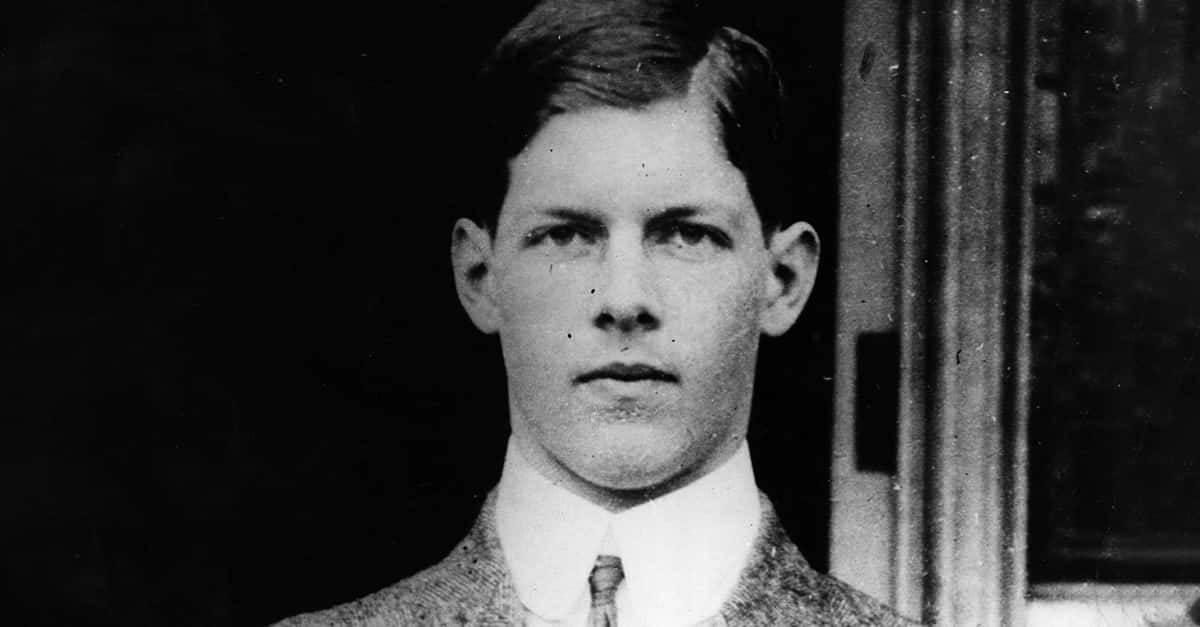Her Love Story Turned Into A Nightmare
Aspasia Manos was fiercely proud of her noble Greek bloodline, but an impressive pedigree wasn’t enough to satisfy those who opposed her marriage to King Alexander I of Greece and denied her a royal title as long as they could. Aspasia and Alexander’s devotion to one another endured strife, humiliation, and a gruesome event—yet their romance still ultimately ended in tragedy. Let’s fall in love with these facts about Madame Manos, the commoner adored by her king.
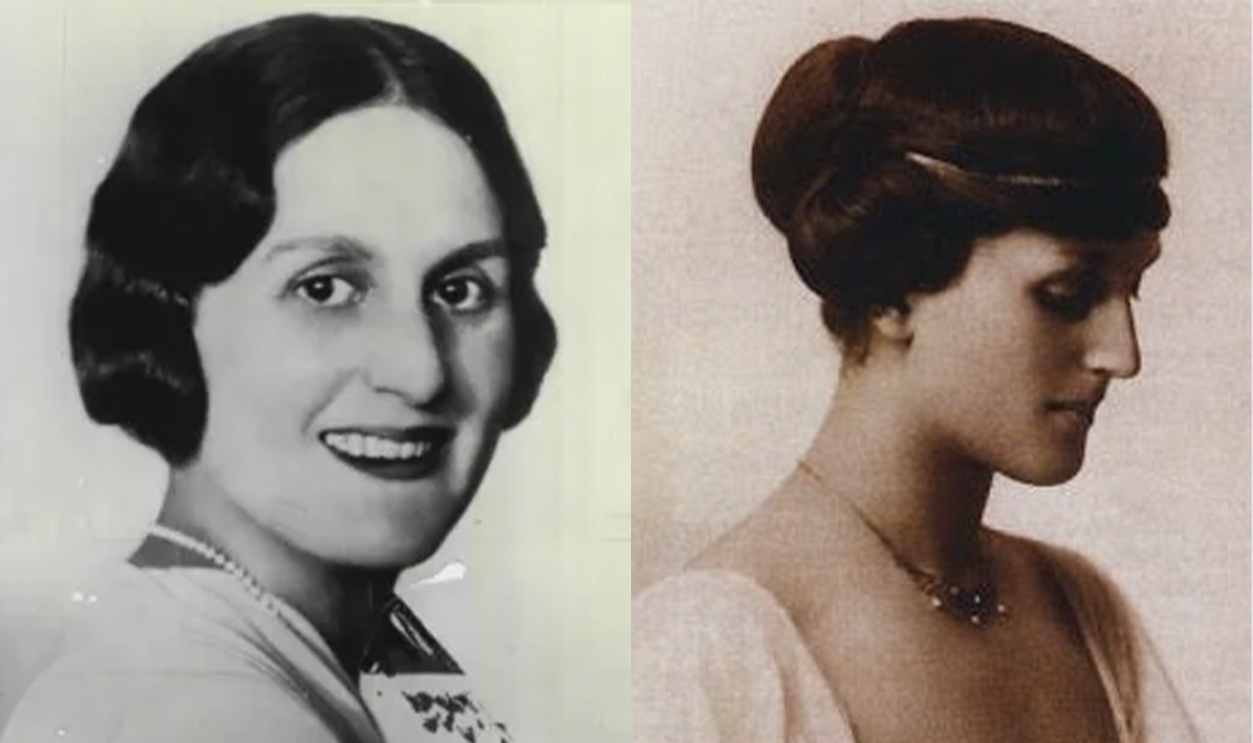
1. She Had Bragging Rights
Aspasia was born in Athens on September 4, 1896. Both her parents, Petros Manos and Maria Argyropoulos, were descendants of the highest-ranking Greek Phanariot families of Constantinople and the rulers of Transylvania, Wallachia, and Moldavia. Petros was a colonel who served as aide-de-camp to King Constantine I of Greece. Unfortunately, his marriage to the job outlasted the one with Maria.
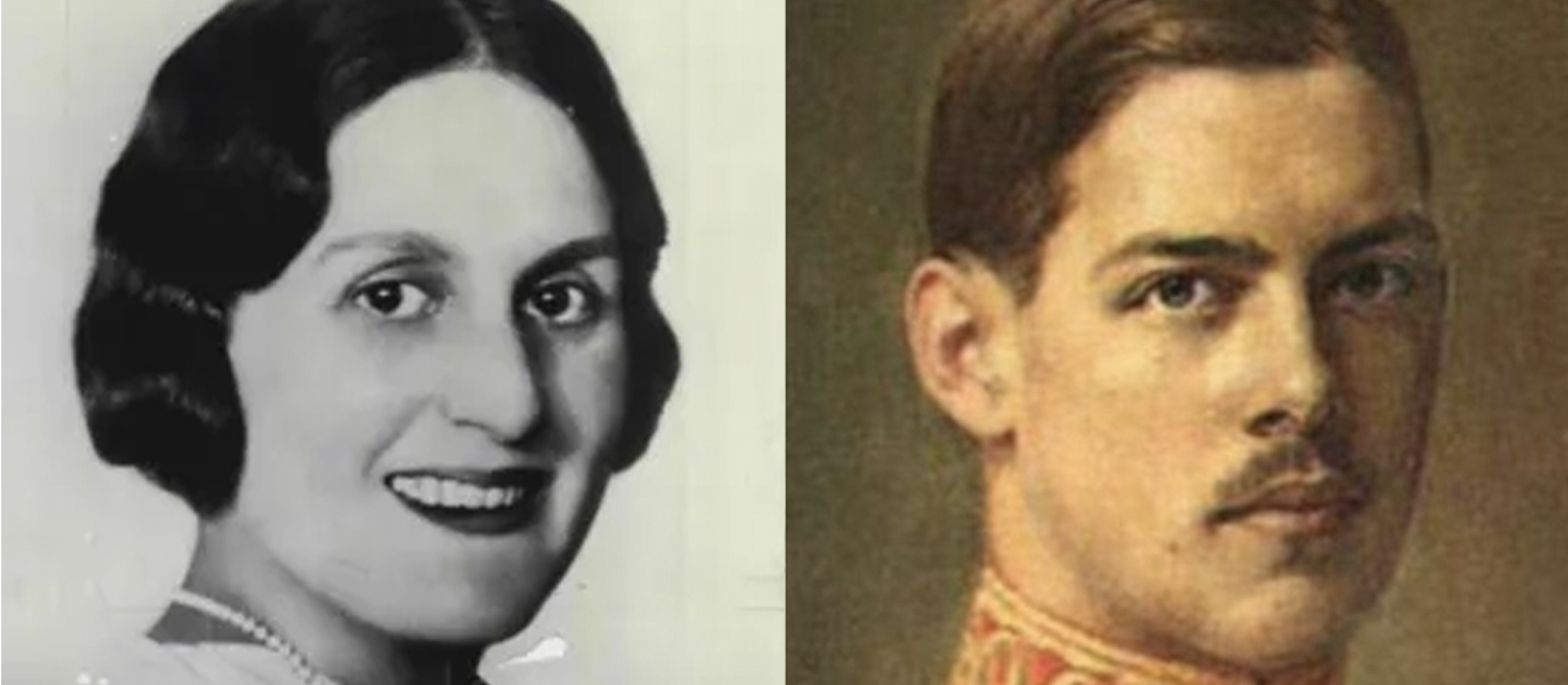
2. She Studied Abroad
Between 1912 and 1913, Aspasia’s family was torn apart when her parents divorced. Petros remarried almost immediately while Maria retained custody of Aspasia and her younger sister Roxane. Aspasia studied at schools in France and Switzerland until the perils of WWI brought her home again in 1915. But it wasn't all bad news: Her life was about to change forever.
3. She Lost A Staring Contest
In 1915, at a party hosted by a palace official, Aspasia caught the eye of Prince Alexander of Greece, and then some. Seated across from one another at dinner, Alexander would not stop staring at her—to the point where guests got uncomfortable. Of course, the two recognized each other from when they played together as children in the palace gardens, but a lot had changed since then.
4. She Was A Beauty
Aspasia was now 19 and uncommonly beautiful. She had luminous brown eyes, a dark complexion, and a “profile like a nymph on a classical Greek frieze.” She barely spoke a word at dinner but maintained a radiant smile. What’s a girl supposed to say when the guy making goo-goo eyes at her all night is a handsome prince? Awkward!
5. Alexander Had It Going On
Alexander held his own in the looks department. He was an athlete with an impressive physique gained by rowing, riding, and gymnastics. He was handsome too. There’s an odd note about him having “shapely nostrils” above his auburn mustache. Heart be still! At the time, this was supposedly indicative of a healthy respiratory system. At least, as Aspasia soon learned, he sure could talk without taking a breath!
6. She Didn’t Buy It
Alexander was nothing if not forward. After dinner, he cornered Aspasia to put the moves on her, but only stopped talking about himself long enough to tell off other guests trying to ask her to dance. Many women would’ve swooned regardless—he was an eligible prince after all—but Aspasia knew of his reputation for being a ladies’ man.
She was flattered by his flirtation, but she refused to be won over that easily and gave him the brush-off. But Prince Alexander wouldn't accept a "no" that easily.
7. There Was Summer Lovin’
That summer, desperately smitten, Alexander followed Aspasia to the island of Spetses, a vacationing hot spot where all the cool kids hung out. Aspasia loved his attention, but she still didn’t trust him—or herself. At first, she made sure to never be alone with him, but soon they were “accidentally” bumping into each other in the swimmers’ changing rooms by the beach.
It was only a matter of time before she succumbed to his charms.
8. She Had A Lovely Voice
Aspasia was reserved but she certainly wasn’t shy. She was a graduate of a music conservatory with a beautiful singing voice and zero fear of performing in public. One night, socializing at Spetses’ Poseidonion Hotel, friends tried to tease her by egging her on to serenade Alexander. She didn’t hesitate! You better believe it hit all the right notes with her lovestruck suitor.

History's most fascinating stories and darkest secrets, delivered to your inbox daily.
9. She Was A Catch
The bathing suits of 1915 were pretty modest by today’s standards, but to some, they were positively skimpy! A shocked boatman saw Alexander and Aspasia swimming alone one day and yelled at them for being “naked.” When Alexander lied and said Aspasia was his fiancée, the boatman told him he’d better hurry up and marry her before someone else did.
However, Alexander only had one thing on his mind—and it wasn’t marriage.
10. They Both Blew It
Intimacy-wise, Alexander couldn’t get on any of the bases. He was lucky he was up to bat at all! Aspasia was falling for him but she was wary of becoming just another notch on his nightstand. Frustrated, he made the bold move of sneaking into her room one night to try to kiss her. Aspasia threw him out! Alexander left angry and humiliated. Poor Aspasia regretted it almost immediately, but it was too late. Or was it?
11. There Were Bigger Problems
Meanwhile, in Athens, WWI was causing major political strife between King Constantine I, Alexander's father, and Greece’s Prime Minister, Eleftherios Venizelos. Venizelos wanted the country to align with the Anglo-French powers of the Entente. Constantine wanted Greece to stay neutral, even as his brother-in-law, Kaiser Wilhelm II, pressured him to side with the German-Austrian alliance.
The King couldn't keep Greece out of the conflict, and he reluctantly agreed to general conscription. Alexander reported for duty in Athens—with Aspasia still on his mind.
12. She Had Help
Alexander used all his free time to think of ways to get back into Aspasia’s good graces. He begged his sister Helen to find out if he still had a shot. Boy, was Aspasia happy to see her! Quickly, the couple picked up where they left off—well, with Alexander controlling his urges better this time. Helen acted happily as chaperone, accompanying them on their long walks and horseback rides, at a generous distance of course.
Aspasia was slowly letting her guard down. If only she'd known what she was getting herself into...
13. She Was Forgetful
In the fall of 1916, Aspasia met Alexander at Tatoi Palace where he officially proposed. Overjoyed, she said yes, but they were so excited they forgot to seal the deal with a kiss before her family walked back into the room. You’d think there’d be plenty of time for smooching coming up, but not exactly. The engagement had to be kept a secret.
If they didn't already know it, it was now very clear: Their forbidden love wasn't going to be easy.
14. There Was A Hitch
By 1917, Greece was fiercely divided. There were those who supported Venizelos and the Allies, and royalists still waiting for Constantine to take any side at all. Ultimately, the Entente gained enough power to force Constantine and the rest of the royal family into exile. Alexander had no choice but to take his father’s place. His older brother, Crown Prince George, was too pro-German and Greece needed a king—one who was not about to announce his engagement to a commoner.
15. She Had To Be Patient
Oh, cringe! Alexander’s enthronement ceremony took place in front of his dad! Aspasia didn’t attend, but afterward, Alexander confessed his plans to marry her to Constantine and asked for his blessing. Hoping the unsuitable fling would fizzle in time, the deposed king advised his son to put off marriage until the conflict was over. Alexander was disappointed, but agreed to postpone.
It was the last time he’d see his father or any of his family again.
16. She Made People Nervous
It was pretty clear early on that Alexander’s job as king was to sit on the throne and look regal while Venizelos ran the country. Venizelos cut him off from his friends and family completely. Alexander was miserable, but this was only the beginning. New staff called him a “traitor’s son” and spied on him day and night. His only comfort was Aspasia, but Venizelos feared she might use her family connections to act as a go-between for Alexander and his father. Her supporters were few, but they were powerful.
17. She Had An Important Fan
In March of 1918 the Duke of Connaught, an English Ambassador, paid a surprise visit to Greece and discreetly requested to meet with Aspasia. The public assumed he was there to set Alexander up with the UK’s Princess Mary, but they were all wrong. The British actually supported Alexander's real engagement, worried he might abdicate if he and Aspasia couldn’t be together.
The Duke displayed England’s full approval—though in the creepiest way possible. He told Alexander that if he were younger, he’d marry Aspasia himself. Still: score one for our forbidden lovers.
18. She Kept Her Distance
Things were only going to get even more complicated. Venizelos put Alexander’s marriage to Aspasia to a vote with his ministers. They finally approved it—how generous of them!—but upheld its postponement, insisting it remain a secret until the fighting was over. To distract herself from the disappointment, Aspasia left for the Macedonian front to assist as a nurse.
She already had training and was no stranger to charitable service. Dealing with rumors of her beloved’s infidelity, however, was new to her.
19. She Heard Sketchy News
Gossip that Alexander was stepping out with a Red Cross stenographer named Josephine Kelly made front-page headlines. Some said a publicist planted the story to make the Red Cross’ Greek commission look bad, but witnesses did claim that Josephine spent a lot of Sundays at Alexander’s country house. Apparently, he insisted she call him by the pet name “Jack.”
Hard to imagine a rumor more upsetting for Aspasia—but the gossip was soon going to get even worse.
20. She Didn’t Know What To Think
Aspasia’s father Petros lived in exile with the royal family in Switzerland—until his sudden demise under mysterious circumstances. The details are still unknown, but a source back then alleged he took his own life following an affair with Alexander’s sister Helen. But what really happened? Constantine had many political enemies; people who would want to spread rumors that he couldn’t control the people around him. Separated at the time, Aspasia didn’t know what to believe.
21. She Kept Her Cool
Aspasia’s first official public appearance with Alexander was at a victory ball thrown by the British in Athens in 1918. Those in the know, or who at least had suspicions of their engagement, speculated the relationship was on its last legs because Alexander already “got what he wanted” from her. That Aspasia kept her composure with those rooting for a break-up was a real feat, considering she had a serious temper.
22. She Was Feisty
Aspasia had a fiery pride and insulting it was a mistake. When the British Prime Minister’s daughter said Greece’s neutrality at the start WWI was out of cowardice, Aspasia taught her a painful lesson: She slapped the woman right in the face! Once, while playing chess with friends, Alexander called her a cheater, hinting that she came from a long line of them.
Aspasia hauled off and said that her ancestors were so much better at strategy than his that the only reason Phanariots weren’t running Greece was because they didn’t want to. Burn!
23. Their Patience Wore Off
WWI was over, but the battle for the green light to marry raged on. Venizelos still held out permission to marry like a carrot on the stick, always just out of reach. Meanwhile, Alexander was finally able to receive mail from his family again—though their letters brought only bad news. His mother, Queen Sophie, merely guilt-tripped him, warning that such a marriage would kill his father.
It was obvious the perfect time would never arrive and so the couple took matters into their own hands.
24. They Got Away With It
A priest walked into a home expecting to baptize a baby, but—surprise!—it was the king and Aspasia waiting to say I do! Suspecting something fishy, he insisted he couldn’t marry them without the right robes. Alexander ran to a small nearby chapel and begged its attendant to give him some—though he told a little white lie in the process. He claimed the robes were so the priest could give a dying man his last rites!
Out of excuses, the priest declared Alexander and Aspasia husband and wife on November 17th, 1919 and there was nothing anyone could do about it.
25. No One Recognized Her
Technically, the marriage was legal, but royal weddings had to have the permission of the church, and this one didn’t. Leery of suddenly recognizing Aspasia as Queen, and dealing with the controversy of a morganatic marriage—that old "she was a commoner" thing again—Venizelos and the government once again asked the couple to keep their status secret.
That wasn't going to be easy—in part because Aspasia’s mother wasn’t having it.
26. She Moved In
While Alexander was on a trip to Macedonia, Aspasia’s mother decided they should move into the royal palace anyway. She shocked courtiers by announcing matter-of-factly that Aspasia was the king’s wife and had every right to be there. News spread and reached Alexander, who rushed home to control the situation. He managed to convince his mother-in-law to leave, followed by Aspasia, a few blissful days behind.
The marriage that half of Greece had tried to stop was already a headache—and it wasn't going to get better any time soon.
27. Word Got Out
After a lot of letters pleading for his compassion, Venizelos finally agreed to let Aspasia and Alexander honeymoon together in Paris on the condition that they keep a low profile. Alexander wouldn’t have the public assuming Aspasia was simply his lover, so he ignored Venizelos's warnings and publicity ban. In fact, he did the exact opposite of what he was told.
Alexander got the editor of the leading paper in Athens to leak the news of their marriage. At last, no more secrets!
28. She Was Fearless
Despite their rocky start, the newlyweds quickly started making a name for themselves. Parisians were smitten with the couple, Aspasia in particular. They referred to her as “Mademoiselle Manos” and commented not only on her unique beauty, but also her heroism. She and Alexander witnessed a gruesome accident in which a Count’s chauffeur lost control of a car and crashed into a tree. As Alexander drove the injured to the hospital, Aspasia administered first aid.
29. They Sort Of Settled Down
Though the public had known of the marriage for months, Aspasia did not move in with her husband right away after their return to Greece. She still did not have an official title, so the papers reported that “Madame Manos” was staying with her sister in Athens. That’s not to say there were marriage problems. By the time she moved into Tatoi Palace officially, she was already pregnant.
Yes, the future seemed rosy, but tragedy was about to strike.
30. The Unimaginable Happened
One afternoon, while cutting through the woods with his German Shepherd Fritz, Alexander suddenly noticed the dog was no longer with him. He followed screams and found Fritz with a local tavern owner’s pet macaque monkey in his mouth. While trying to save the animal, its mate leaped from out of nowhere and bit Alexander viscously on his hands and leg.
Alexander managed to get to a hospital where Aspasia rushed to his side. He told her he was fine. He wasn’t.
31. She Watched And Waited
Alexander’s wounds were cleaned with alcohol, gasoline, and iodine, but antibiotics as we know them did not yet exist. He seemed well the next day, but soon everyone started to realize that something was very wrong. Alexander started burning up with fever the following day. Aspasia and a team of eight doctors kept constant watch of his leg for infection. Five days in, there were signs his wound was festering. Amputation was suggested, but no doctor was willing to remove the king’s leg. It might have saved his life.
32. She Had A Bad Feeling
For the superstitious, there were signs of doom. The old saying, "three on a match” had Aspasia worried when, the evening before, she, Alexander, and a friend decided to have an after-dinner smoke and the friend lit all three with the same stick. Fritz had also broken a mirror. A palace cleaning woman read the king’s coffee grounds and predicted his demise unless Fritz was put down and his liver made into a salve.
They refused the barbaric prescription—but Alexander just kept getting worse.
33. She Was Her Husband’s Only Concern
Day and night, Aspasia was by Alexander’s side. His pain was so great that he fell in and out of consciousness, sometimes waking only long enough to tell her to rest for the baby’s sake. The fatal infection eventually ran its course. Before taking his last breath, Alexander had a vision of his grandfather beckoning him across a river. Then he uttered his heartbreaking final words:
“I’m coming”, he said, “except I want you to meet Aspasia.” His last word was his pet name for her, “Bika.”
34. Her In-Laws Returned
To avoid more upheaval for the country, King Constantine got his throne back. The family’s attitudes towards Aspasia had softened and they took her in. Sort of. She was still only addressed as “Madame Manos,” and they made her move from the palace into a small house nearby. Aspasia spent that Christmas alone except for a visit from Princess Alice of Battenberg.
35. She Was Despised
For no particular reason, Aspasia’s sister-in-law, Elisabeth of Romania, hated her guts. She was unhappy in her passionless marriage to Alexander’s brother George and loathed her life in Athens. She felt disrespected by relatives who only spoke Greek, and envied those around her with more money and freedom. Was she jealous of Aspasia’s life with Alexander, even if it was over, or was she just isolated and miserable? Maybe both. Maybe she believed certain rumors of Aspasia’s ambitions.
36. Her Baby Made People Smile
With Aspasia’s due date nearing, questions about succession arose. There was talk that some plotted to put a son on the throne, and rumors that Aspasia supported the idea. Imagine everyone’s relief then when on March 26, 1921, Aspasia gave birth to a baby girl who no longer threatened the dynasty. She named her Alexandra, but a delicate question remained: Was her daughter a princess?
37. Her Daughter Came First
On July 22, 1920, at the urging of Queen Sophie, Constantine passed a law that gave him the right to retroactively recognize marriages of the royal family, even morganatic ones. This meant that baby Alexandra now held the title of Princess of Greece and Denmark, and was styled as Royal Highness. What was Aspasia, chopped liver?
38. She Was The Exception
Aspasia’s wasn’t the only non-dynastic marriage in the family. Prince Christopher of Greece’s wife was not only a commoner, but a much older American widow named Nancy—and they called her “Princess Anastasia” right from the get-go! Aspasia asked Christopher to plead her case to the king and he did. Finally, Constantine issued a decree on September 10, 1922: Madame Manos was now Her Royal Highness, Princess of Greece and Denmark.
Finally, Aspasia got what was hers! Unfortunately, that's right when everything fell apart again.
39. She Was Good, Thanks
Those Greeks were cuckoo for coups! Conflict in Asia Minor soon led to a brutal military defeat by Turkey, and an ensuing coup d-état forced Constantine to abdicate in favor of his son George. A failed monarchist coup forced George into exile in December of 1923. Four months later, the ruling government formed the Second Hellenic Republic, granting only Aspasia and her daughter the right to remain in Greece.
She gave them a swift “thanks, but no thanks."
40. She Made Do
Penniless—well, by royal standards—Aspasia and Alexandra went to live in Fiesole, Italy with the now widowed Dowager Queen Sophie. In 1927, they moved on to England, then, with the help of an old friend named James Horlick, she used her savings to buy a small property on the island of Giudecca in Venice.
Nicknamed the Garden of Eden, her new, beautiful villa sat on 3.6 hectares of landscaped grounds and gardens, which thrilled both princesses. Penniless, indeed!
41. She Tried Again
In 1933, after living as a single mother for many years, Aspasia was ready for love again. She began a romantic relationship with a Sicilian prince named Starrabba di Giardinelli. He asked her to marry him, and she was ready to accept—but tragedy struck her yet again. Just before they made it official, the prince contracted a fatal case of typhoid fever. Poor Aspasia. She just couldn't get a break.
 Wikipedia, Jean-Pierre Dalbéra
Wikipedia, Jean-Pierre Dalbéra
42. She Lost Her Spot
Two years later, the republic folded and George was back on the throne. Aspasia was happy in Venice and chose not to move home. She only asked the family for her fair share of Alexander’s inheritance for their daughter’s sake. She got it, but at the cost of lost invites to family events for the next five years. As further punishment, they moved Alexander’s gravesite next to his parents in Tatoi without holding a plot for Aspasia. Even at the bitter end, no one wanted them to be together.
43. She Made Moves
The outbreak of Greco-Italian conflict in October of 1940 forced Aspasia and Alexandra to leave the country. She reunited with the royal family and volunteered with the Red Cross in Greece until it was invaded by Germany in 1941. In Crete, the family survived an aerial attack and fled to Egypt, but Aspasia couldn’t imagine spending the entirety of WWII in South Africa stuck with the in-laws. Not surprisingly, George gave her his blessing to go.
44. She Got A Royal Welcome
Aspasia and Alexandra settled in London where once again they got to work for the Red Cross. Relatives like cousins Marina, Duchess of Kent, and kindly Alice of Battenberg’s son, Prince Philip made them feel especially welcome. At one time there was talk about setting Alexandra up with Philip.
However, he was destined to marry Queen Elizabeth II, and it was just as well. Alexandra had her eyes on someone else.
45. Love’s All That Mattered
When Alexandra met 19-year-old Peter II, the exiled King of Yugoslavia, she knew she had found “the one.” Peter was mad for her too, but his mother, Queen Marie, opposed the match because she thought he was too young to get serious. Nonetheless, the couple tied the knot on March 20, 1944. Times were tough, money-wise, so it was a modest ceremony.
Alexandra even had to borrow her wedding dress, but no biggie. She was happy—for a while.
46. She Witnessed Something Special
On July 17, 1945, Alexandra gave birth to her only child, Crown Prince Alexander, in Aspasia’s suite at Claridge’s Hotel in London. Prime Minister Winston Churchill declared the room temporary territory of Yugoslavia for the occasion. Looking back, it was especially poignant because only a few months later, Yugoslavia became a communist state and the monarchy was abolished. Peter did not handle it well.
47. Her Daughter Was In Trouble
Frustrated by exile, Peter began drinking heavily and cheating. The couple had no income and had to sell Alexandra’s jewelry to pay their debts. She became so unhappy that already existent struggles with anorexia intensified. Some claimed she also had body dysmorphic disorder and underwent extreme surgeries to make herself more appealing to Peter, but really, how could she have afforded them? One thing’s for certain, her depression became dangerous.
48. She Worried Constantly
Aspasia moved back to her beloved Garden of Eden, even though she had to sell furniture to pay her bills. “Greece,” she explained to a friend “can be so beautiful, and yet...so hard.” She was always happy to see her daughter and grandson, but during one visit, Alexandra made the first of three attempts to take her own life. Things got so bad that Aspasia had to take temporary guardianship of Alexander.
The hard times would pass, but they took their toll.
49. Her Final Years Were Difficult
The last two decades of Aspasia’s life were marked by endless financial struggles and constant worry and heartache over her daughter’s well-being. Though she put on a brave face, her own health suffered so much that she was too fragile to make the trip to attend her grandson’s wedding in London in July of 1972. Only a month later, serious illness got the better of her of her already frail body, ending her life on August 7 at the age of 75.
50. She Regained Her Rightful Place
Alexandra buried Aspasia in the Orthodox section of a cemetery on the island of San Michele near Venice. However, in 1993, Crown Prince Alexander of Yugoslavia requested the transfer of his grandmother’s—and by then, also his mother’s— remains to the Royal Cemetery plot in the park of Tatoi, where Aspasia, Alexander I, and their daughter could be together again.

